chapter 5
1/52
There's no tags or description
Looks like no tags are added yet.
Name | Mastery | Learn | Test | Matching | Spaced | Call with Kai |
|---|
No analytics yet
Send a link to your students to track their progress
53 Terms
Paleolithic era
25,000 - 8,000 BCE
Old Stone Age; hunters and gatherers
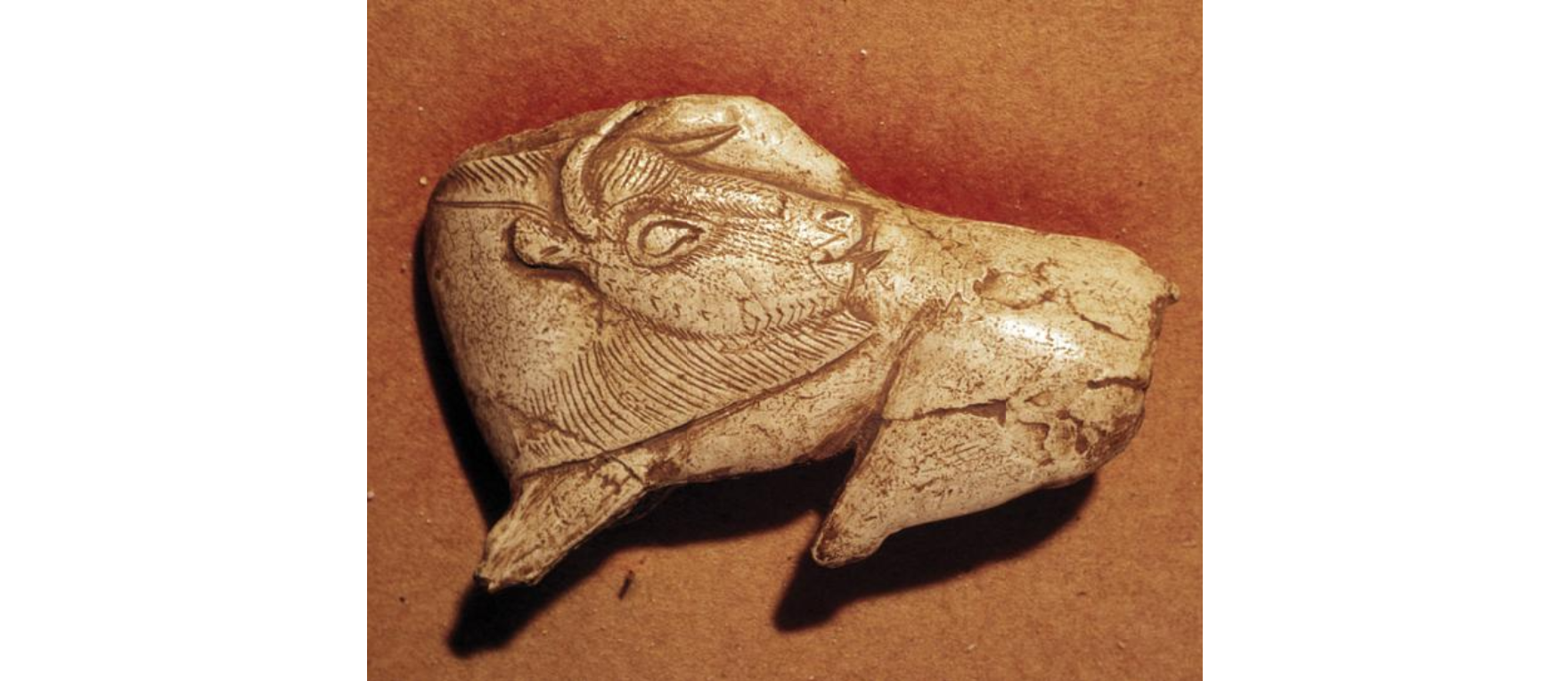
Bison with Turned Head
11,000 BCE
La Madeleine, France
reindeer antler
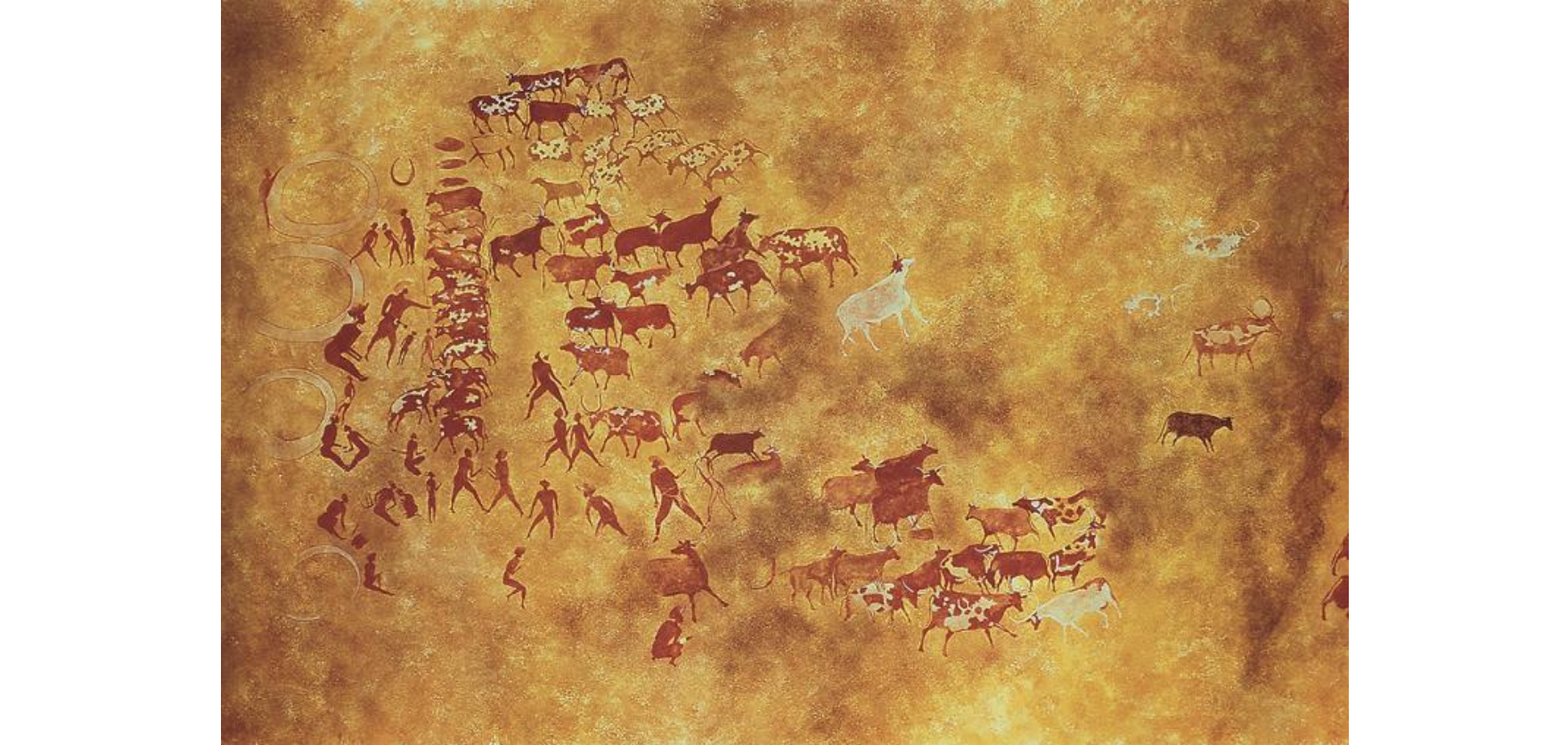
African Rock Painting
2000—1000 BCE
Tassili n’Ajjer
Mesolithic
10,000—7,000 BCE
Middle Stone Age; earliest local, permanent food sources
Neolithic
8,000 BCE
New Stone Age; polished stone tools, agriculture
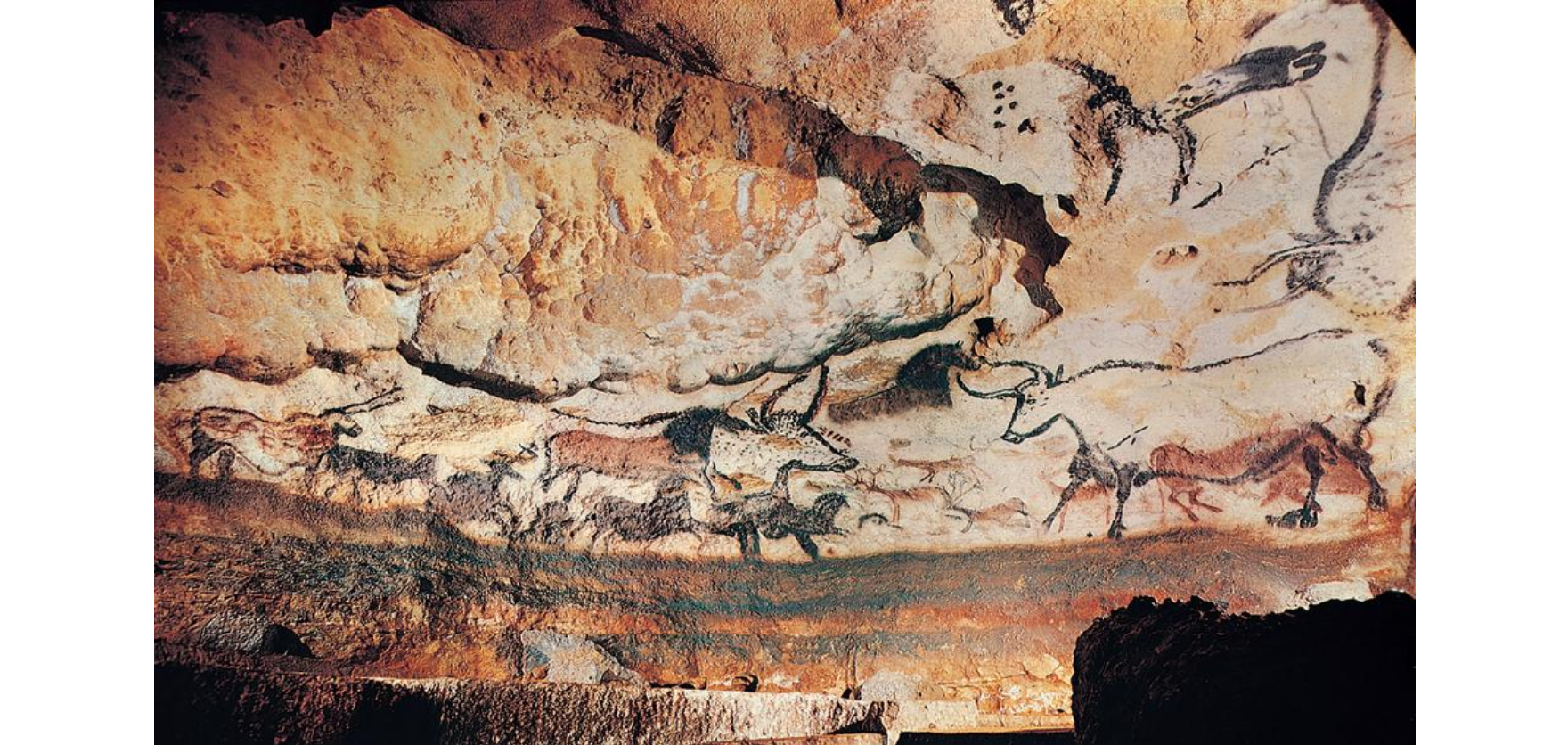
Hall of Bulls
Lascaux, France
15,000—10,000 BCE
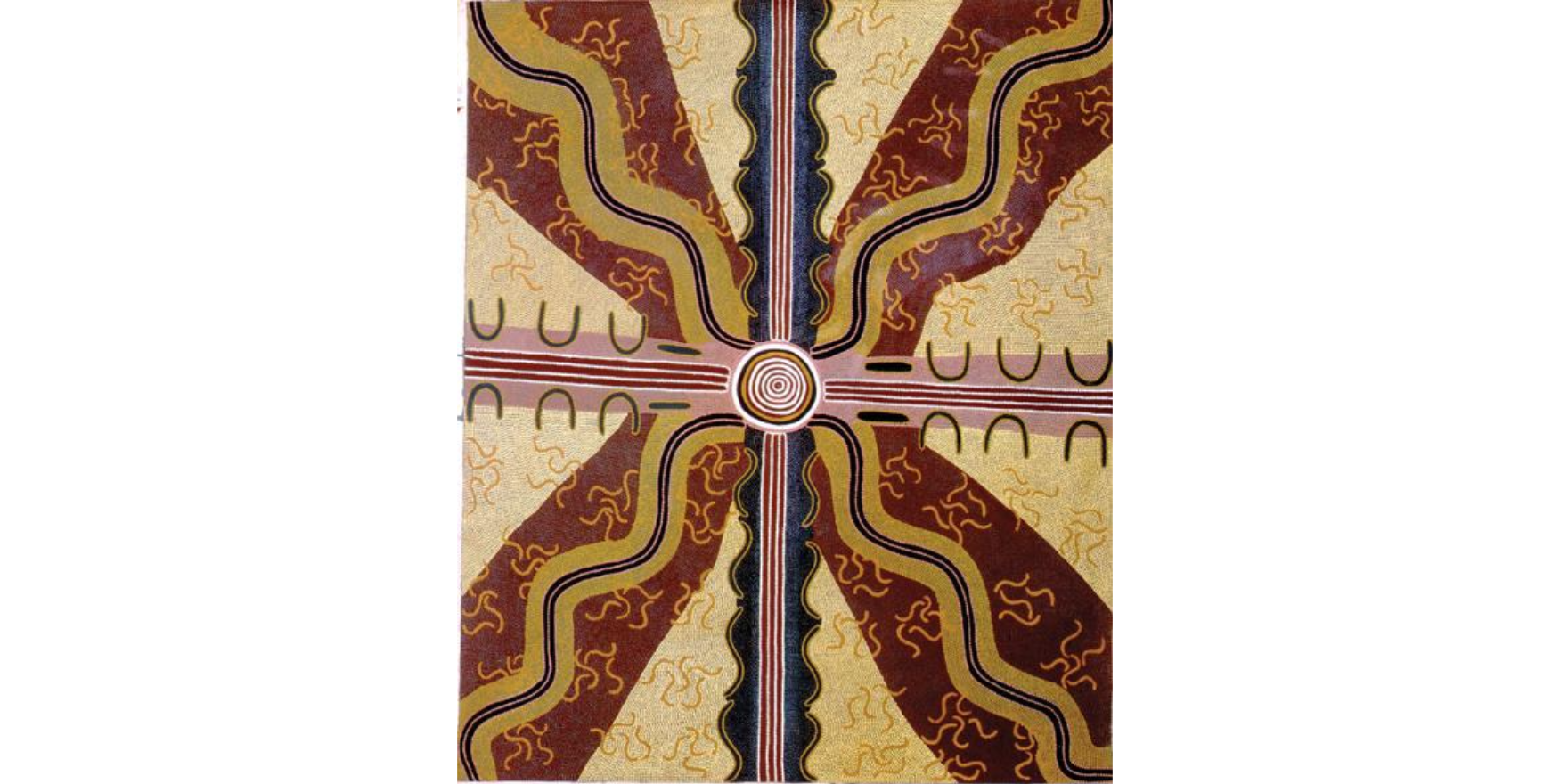
Witchetty Grub Dreaming
Paddy Carroll Tjungurrayi
1980
paint on canvas
→ aboriginal origin of life + sustenance

Tyi Wara Dance Headdresses
Bambana people, Mali
→ mythic antelopes that brought agriculture
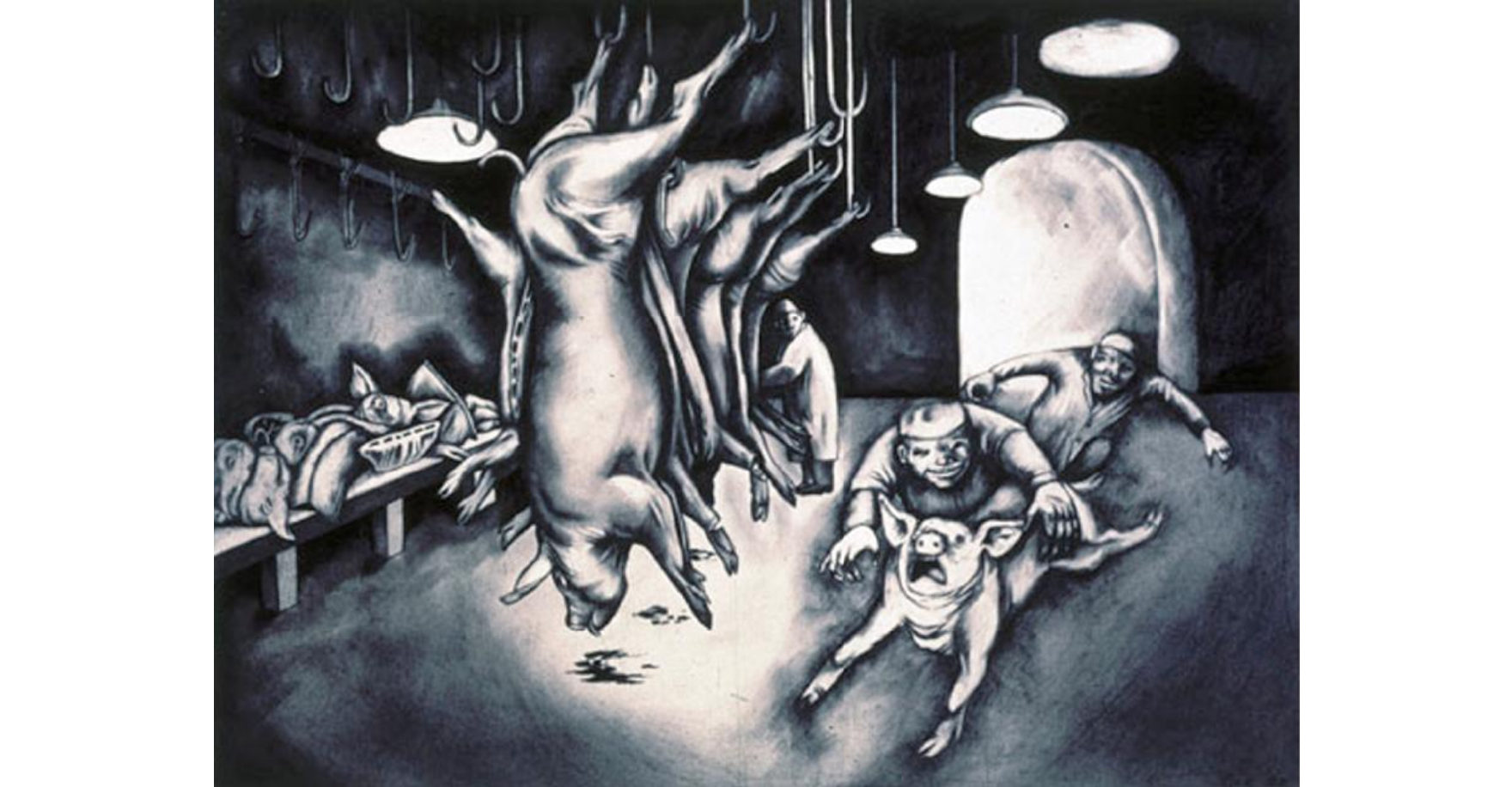
There Is No Escape
Sue Coe
1987
watercolor and graphite on paper
→ critique industrial food indsutry
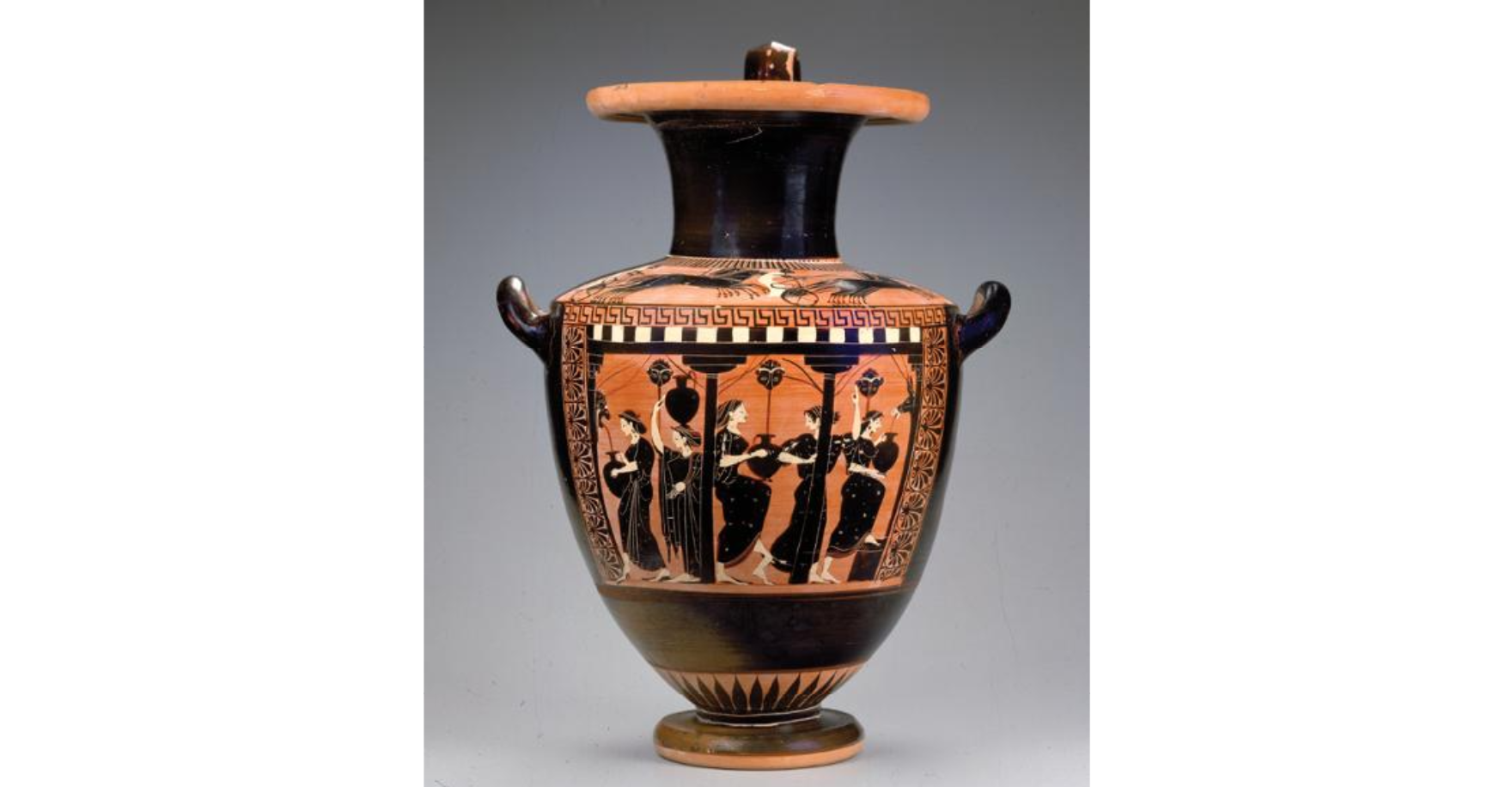
Women at the Fountain House
Priam painter; Archaic Greek
520—510 BCE
ceramic Greek Hydria (style)
→ water jug
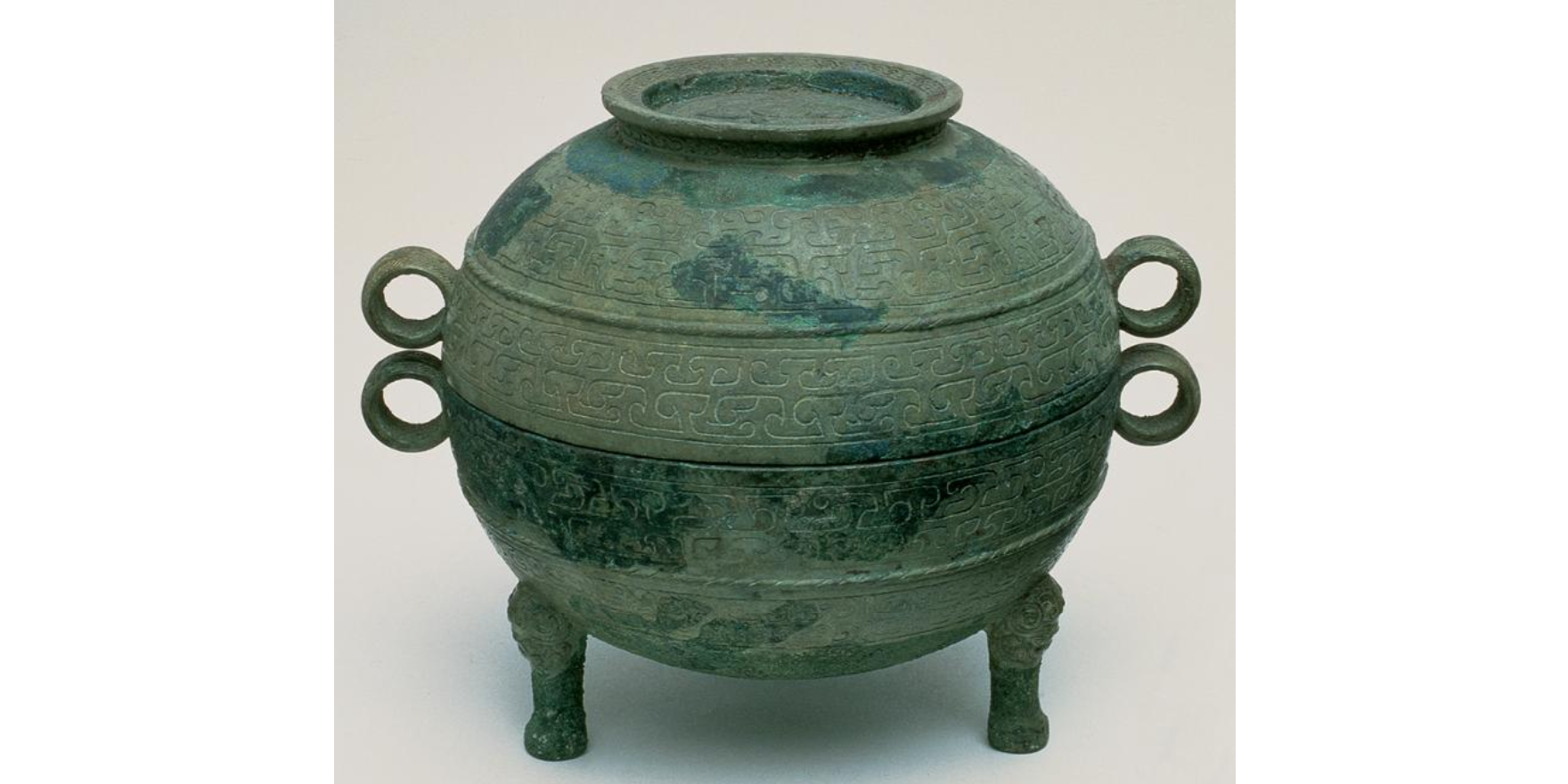
Three-Legged Ting with Cover
Zhou Dynasty, China
500 BCE
cast bronze
→ rituals; receive blessings from dead ancestors
Archaic (Greek)
700—500 BCE
period where artwork in Greece shifted from abstract decoration to nature-based or figurative
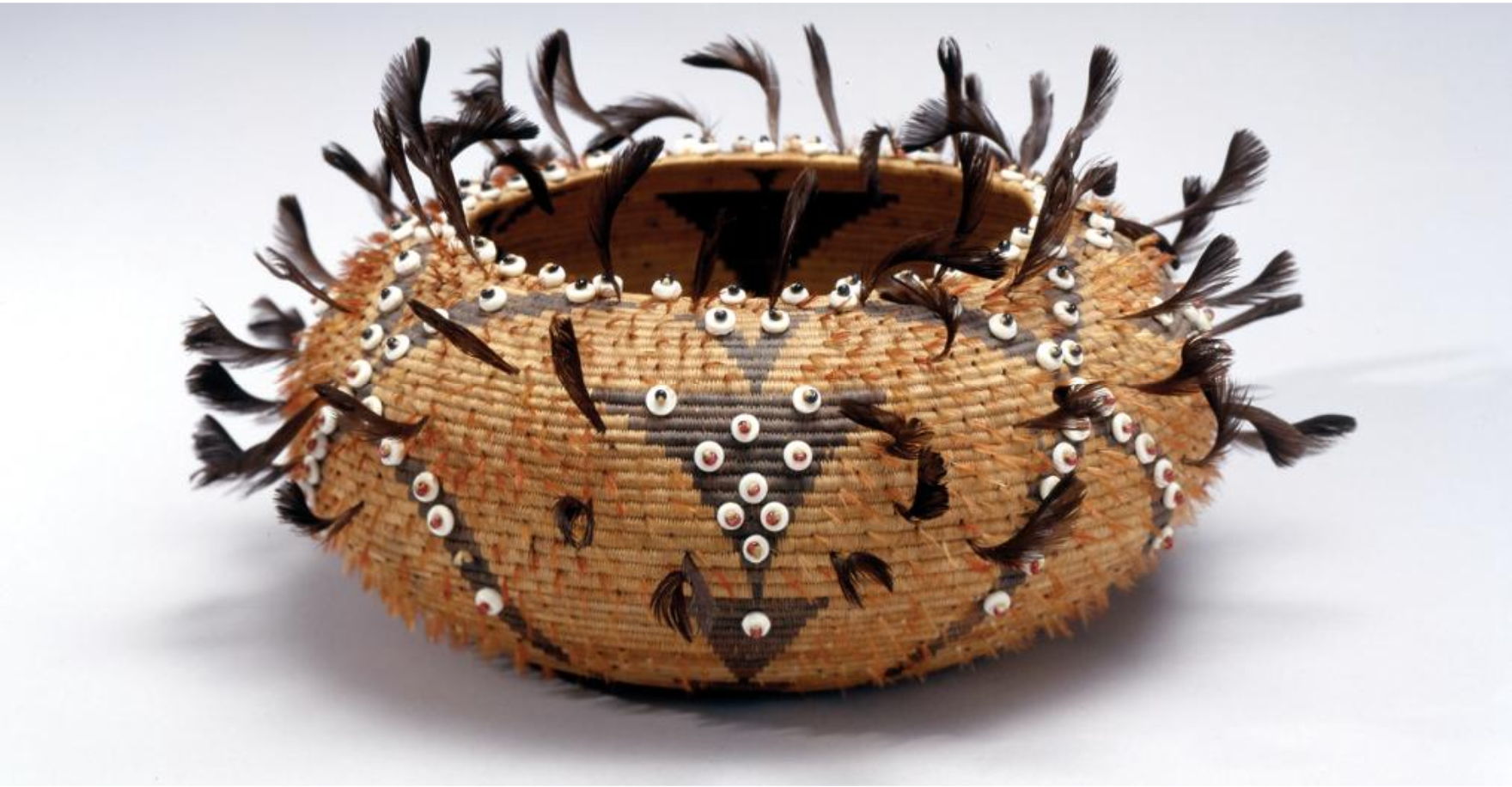
Basket
1890—1910
Pomo tribe
clamshells, woodpecker feathers, quail feathers, tree materials
quatrefoil
2 definitions
shape of 4-leafed clover in architectural plans
niche containing relief sculpture
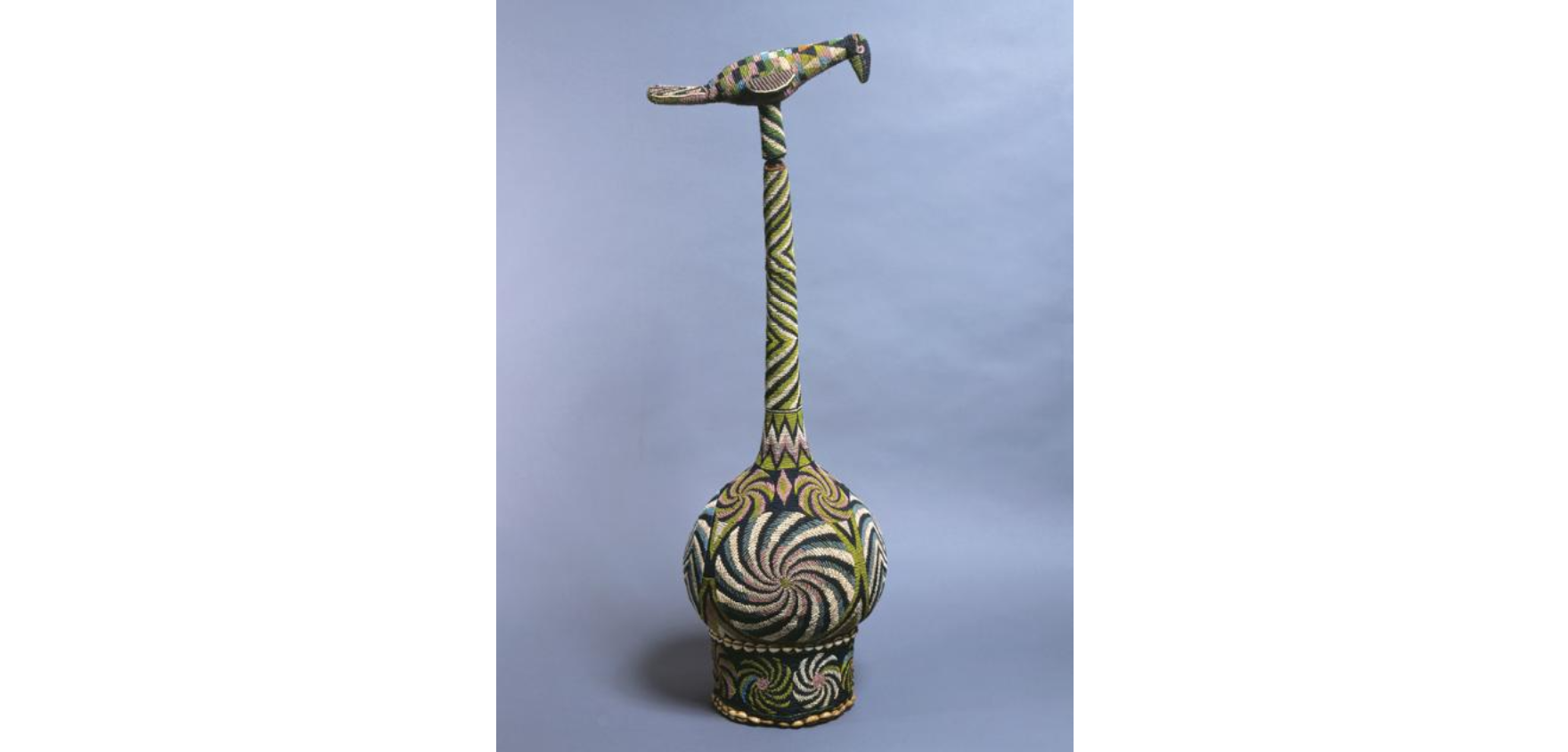
Palm Wine Calabash
late 1800s
Bamileke people, Cameroon
beads, cloth, gourd, cowrie shells
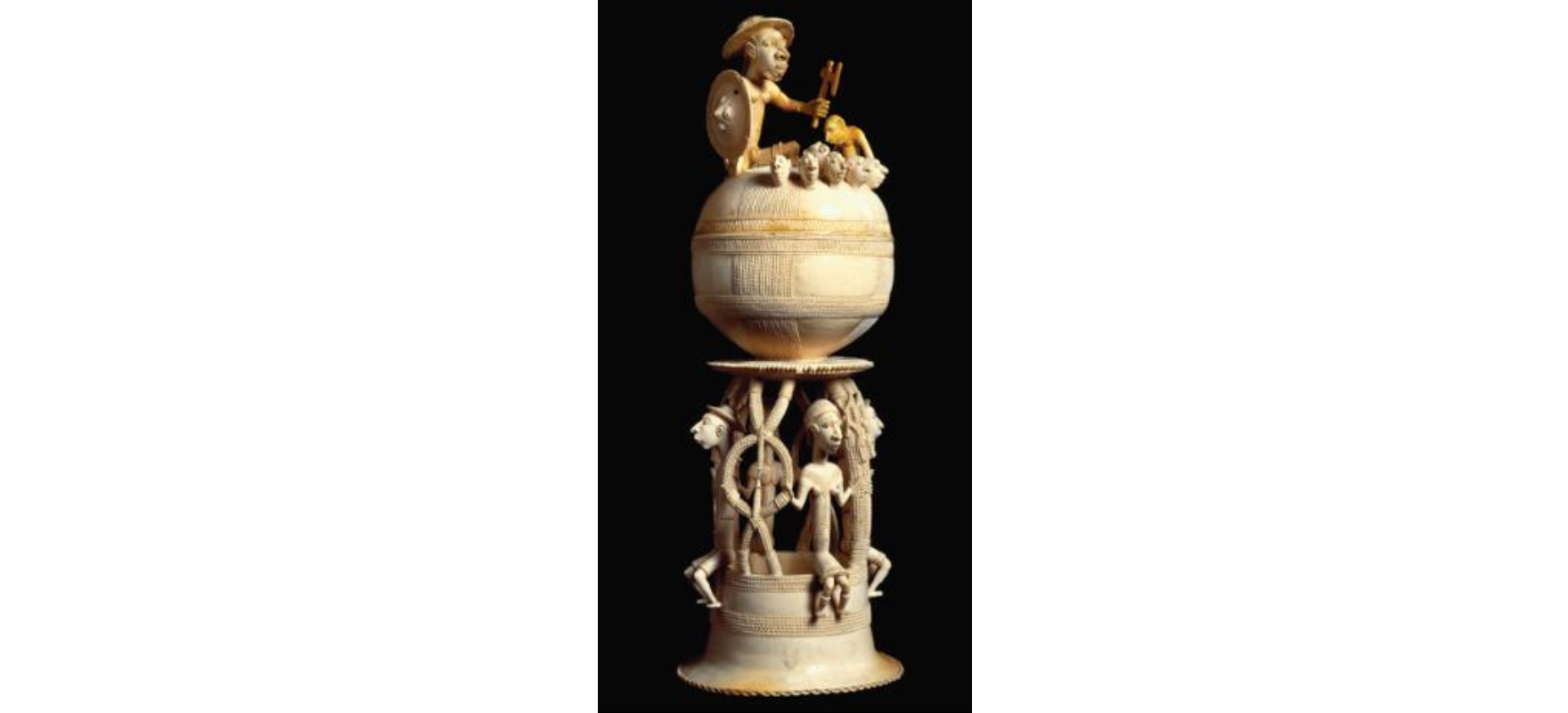
Saltcellar
1500s
Afro-Portuguese, Sierra Leone
ivory

Heinz 57 Tomato Ketchup and Del Monte Freestone Peach Halves
1964
Andy Warhol
silk screen on wood
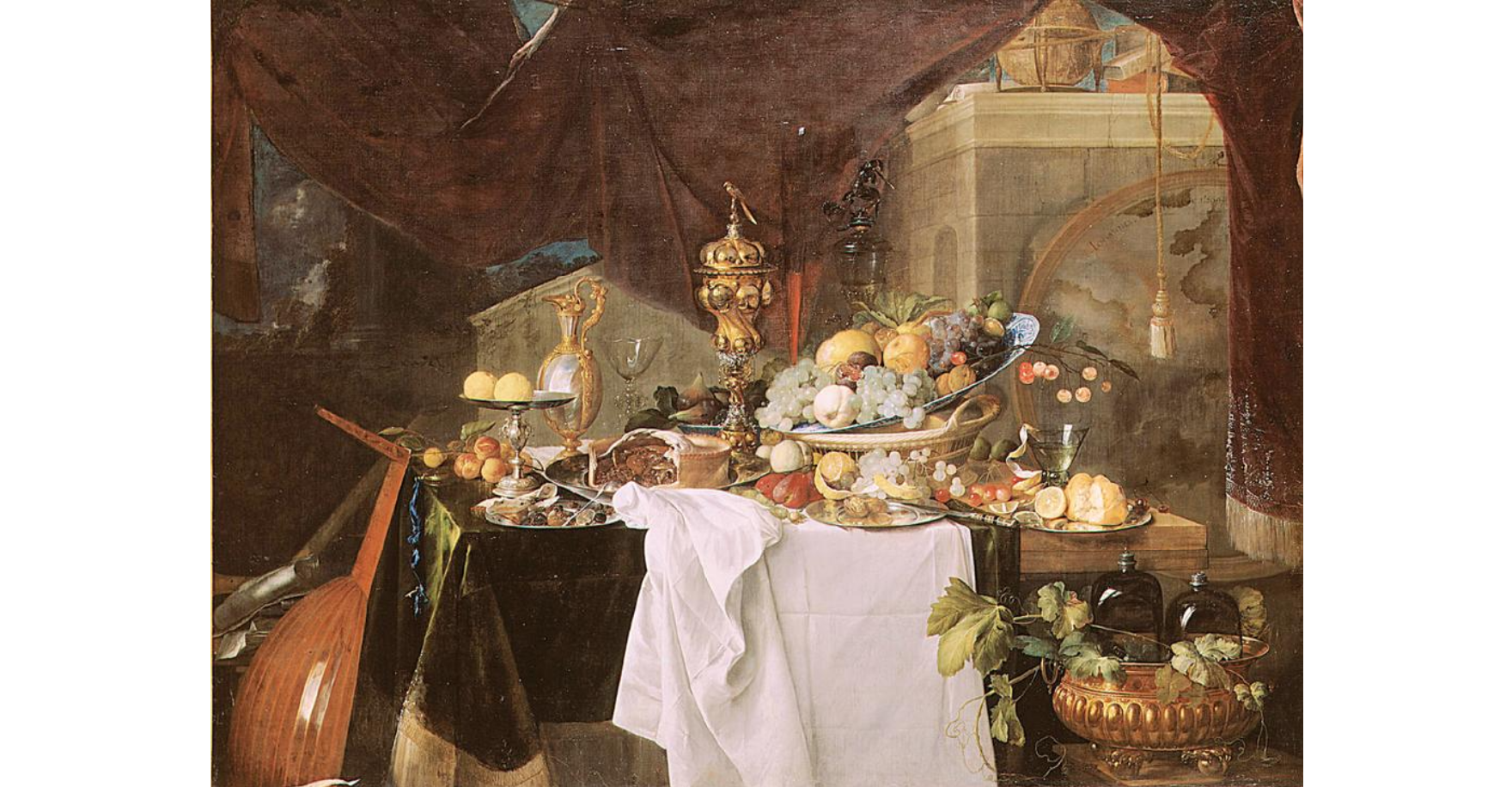
A Table of Desserts
Jan Davidsz de Heem
1640
oil on canvas
vanitas
impermanence of all earthly things
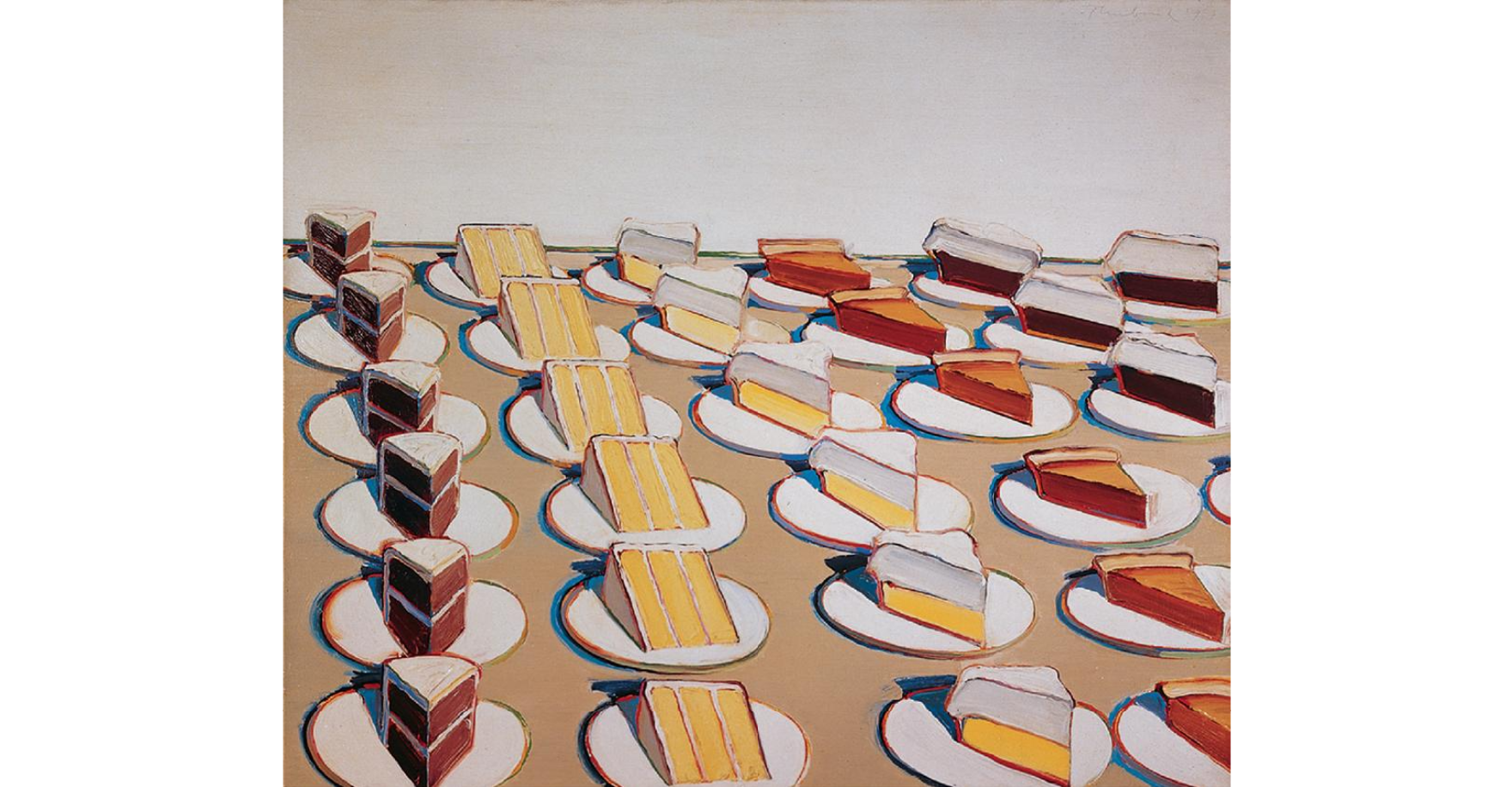
Pie Counter
Wayne Thiebaud
1963
oil on canvas
→ food as visual display, rather than nutrition
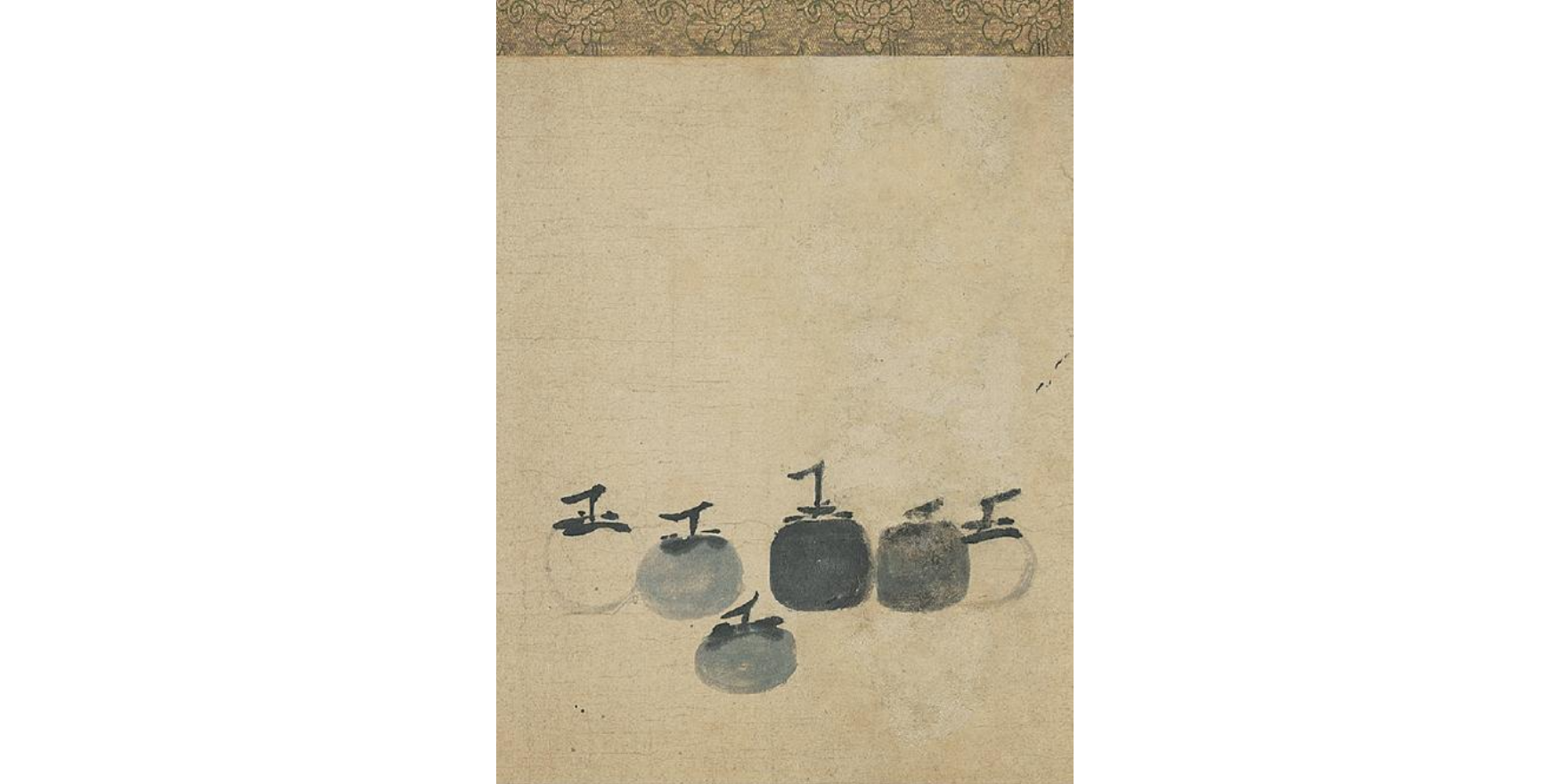
Six Persimmons
Southern Song Dynasty, Kyoto
1200s
Mu-Qi
→ zen buddhism; empty space
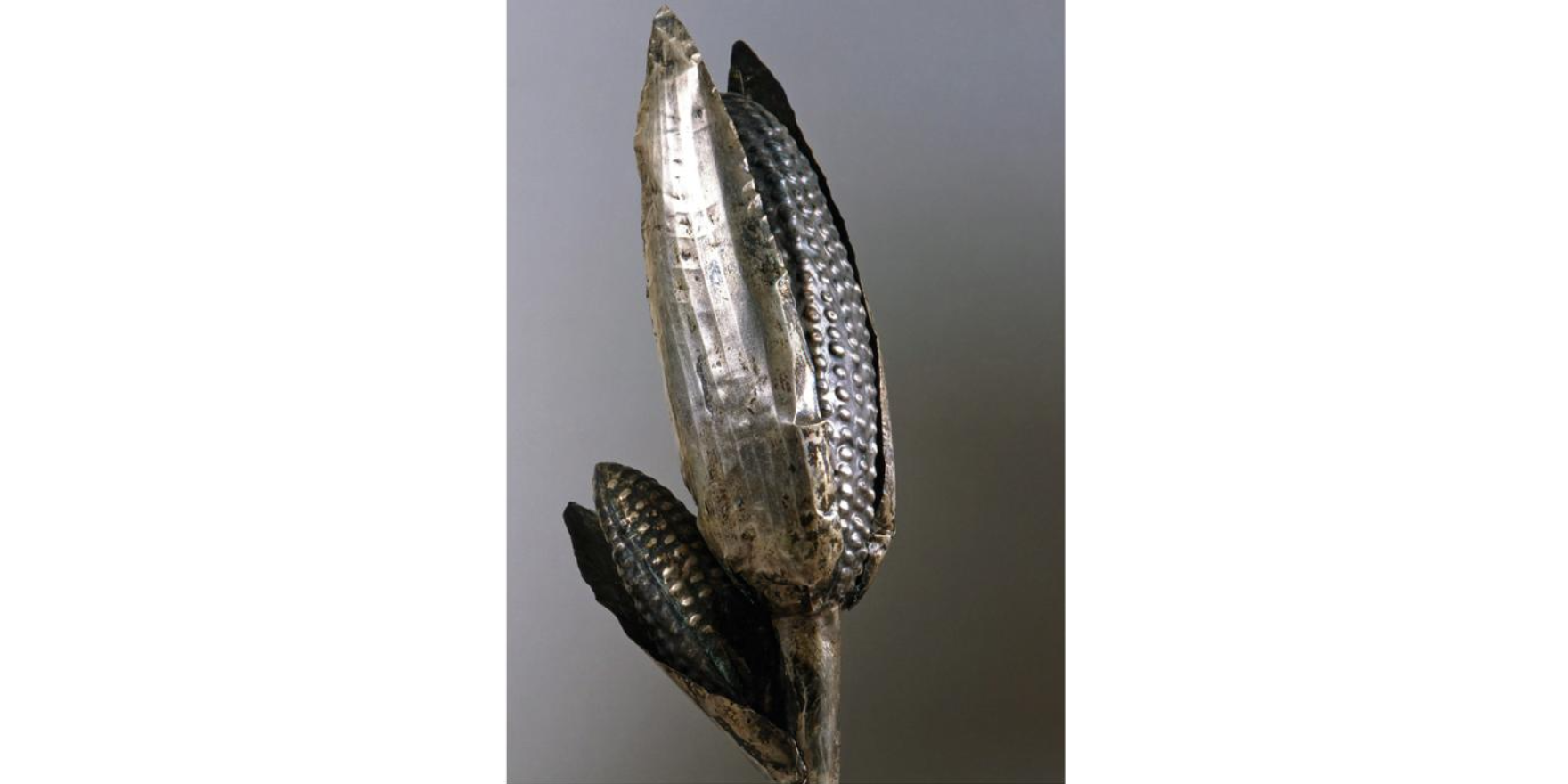
Silver Representation of a Maize Plant
Inca, Peru
1430—1532
silver
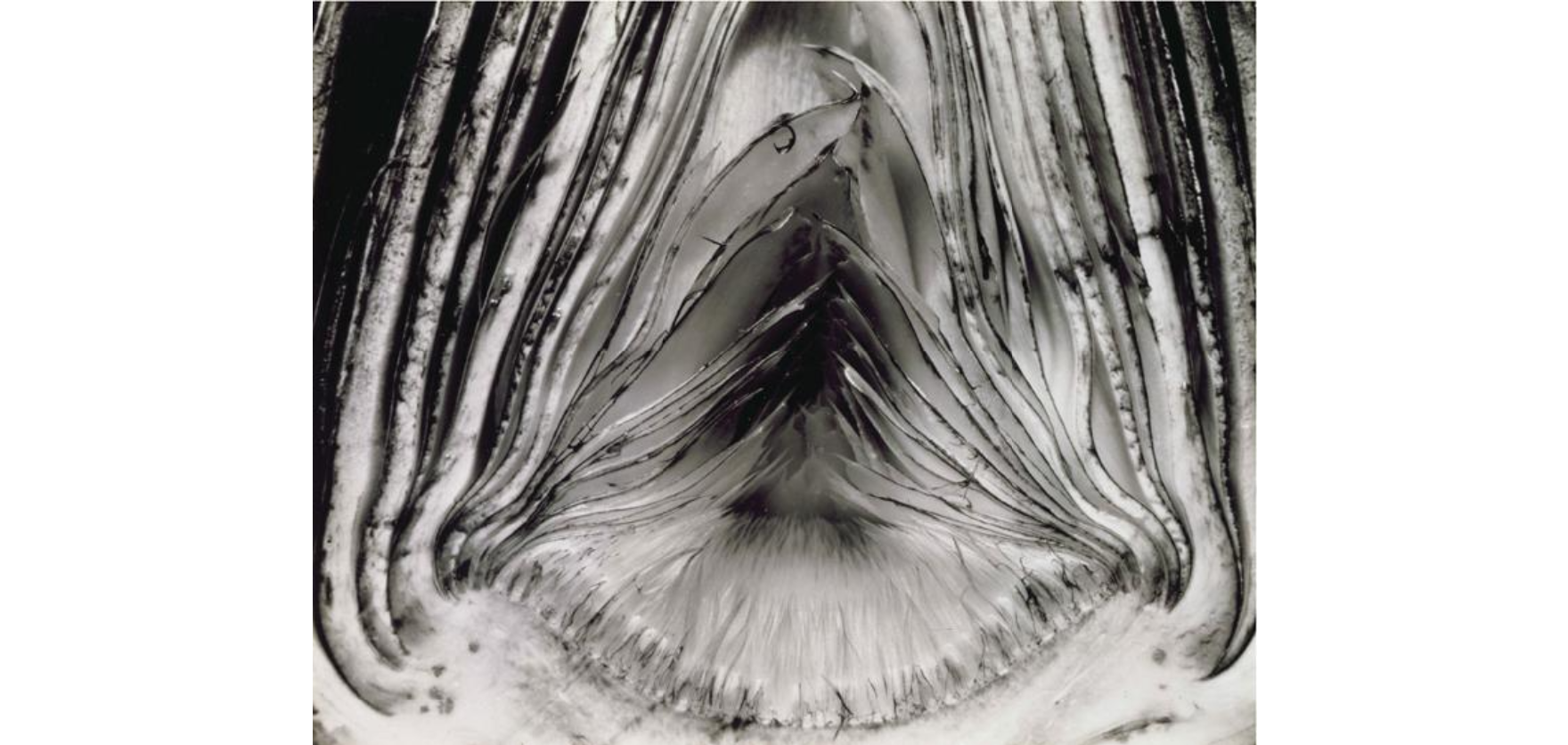
Artichoke, Halved
Edward Weston
1930
photograph
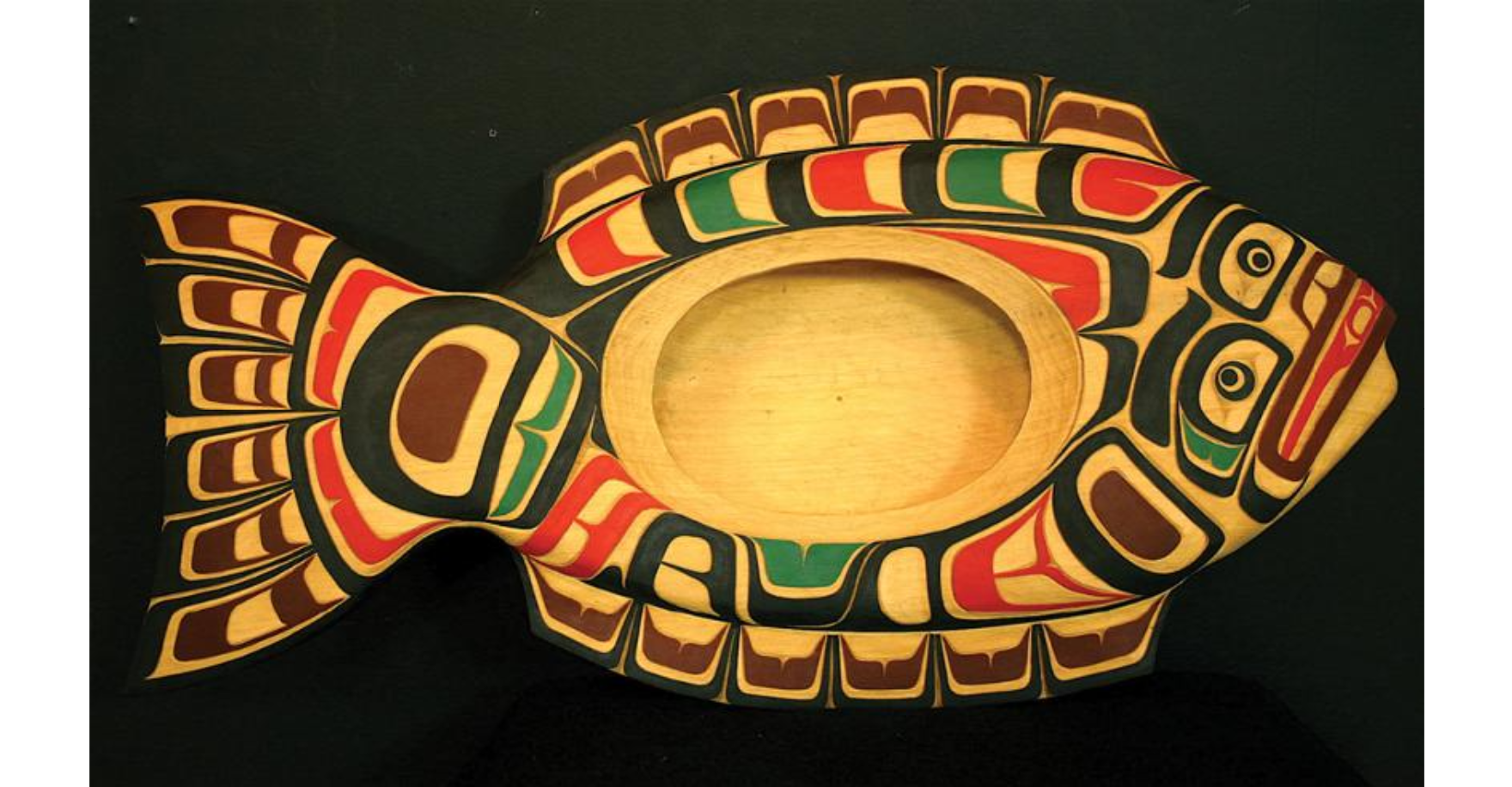
Halibut Feast Dish
Stan Wamiss
2005
yellow cedar on cypress
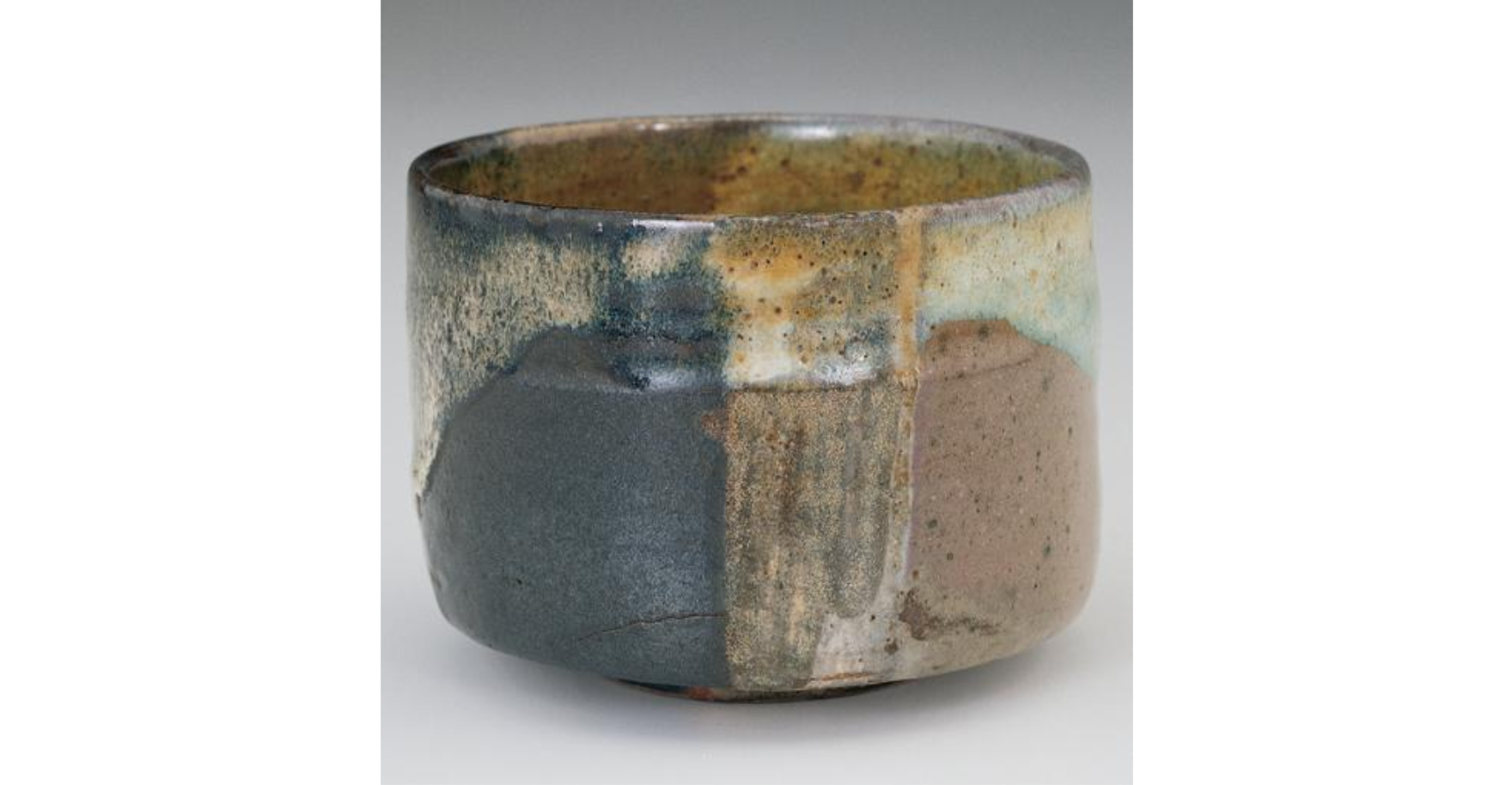
Tea Bowl
Japan, 1600s
ceramic, Satsuma ware
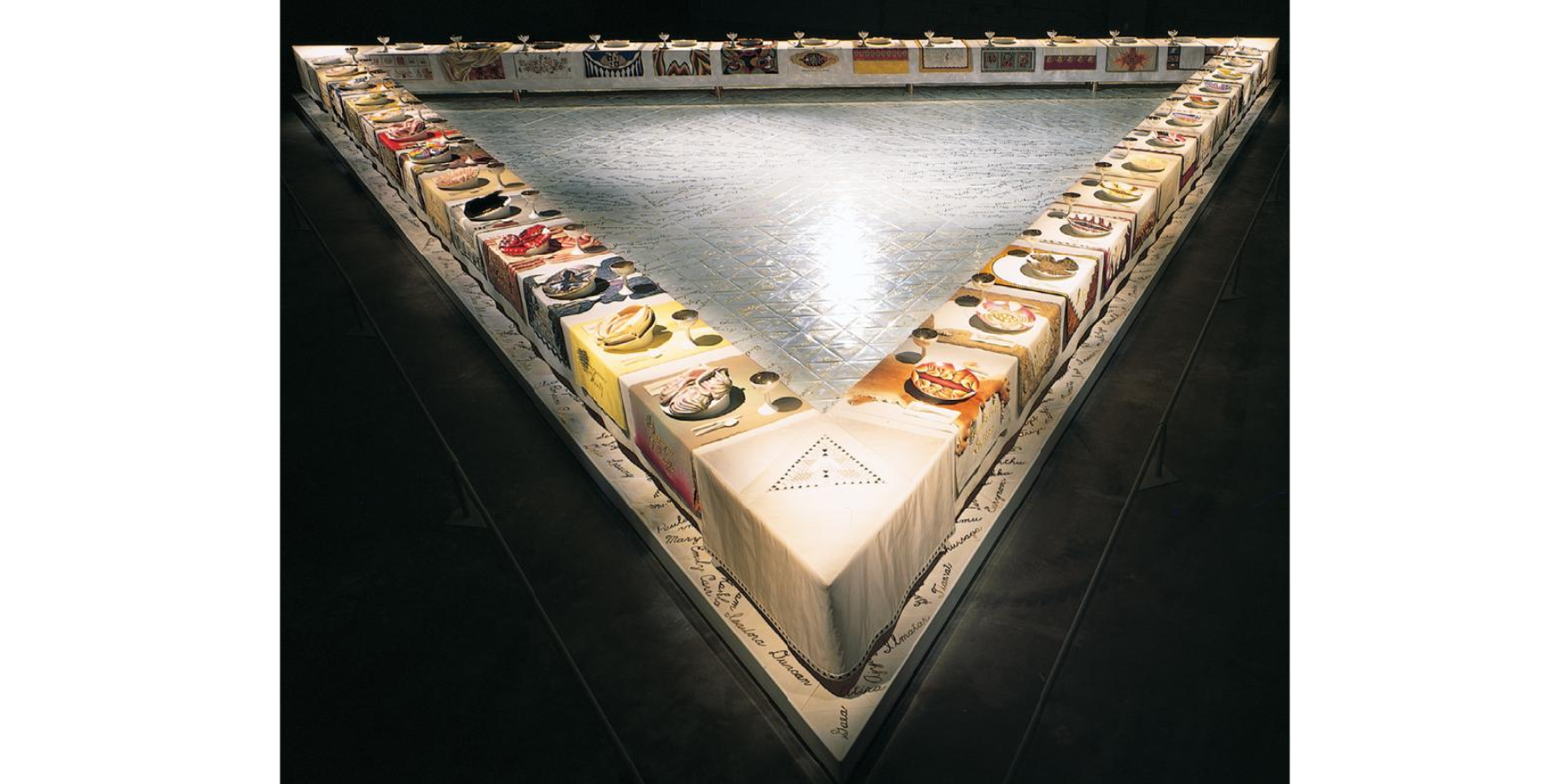
The Dinner Party
Judy Chicago
1974—1979
painted porcelain and needlework
→ imaginary meal celebrating significant Western women
→ feminist Last Supper
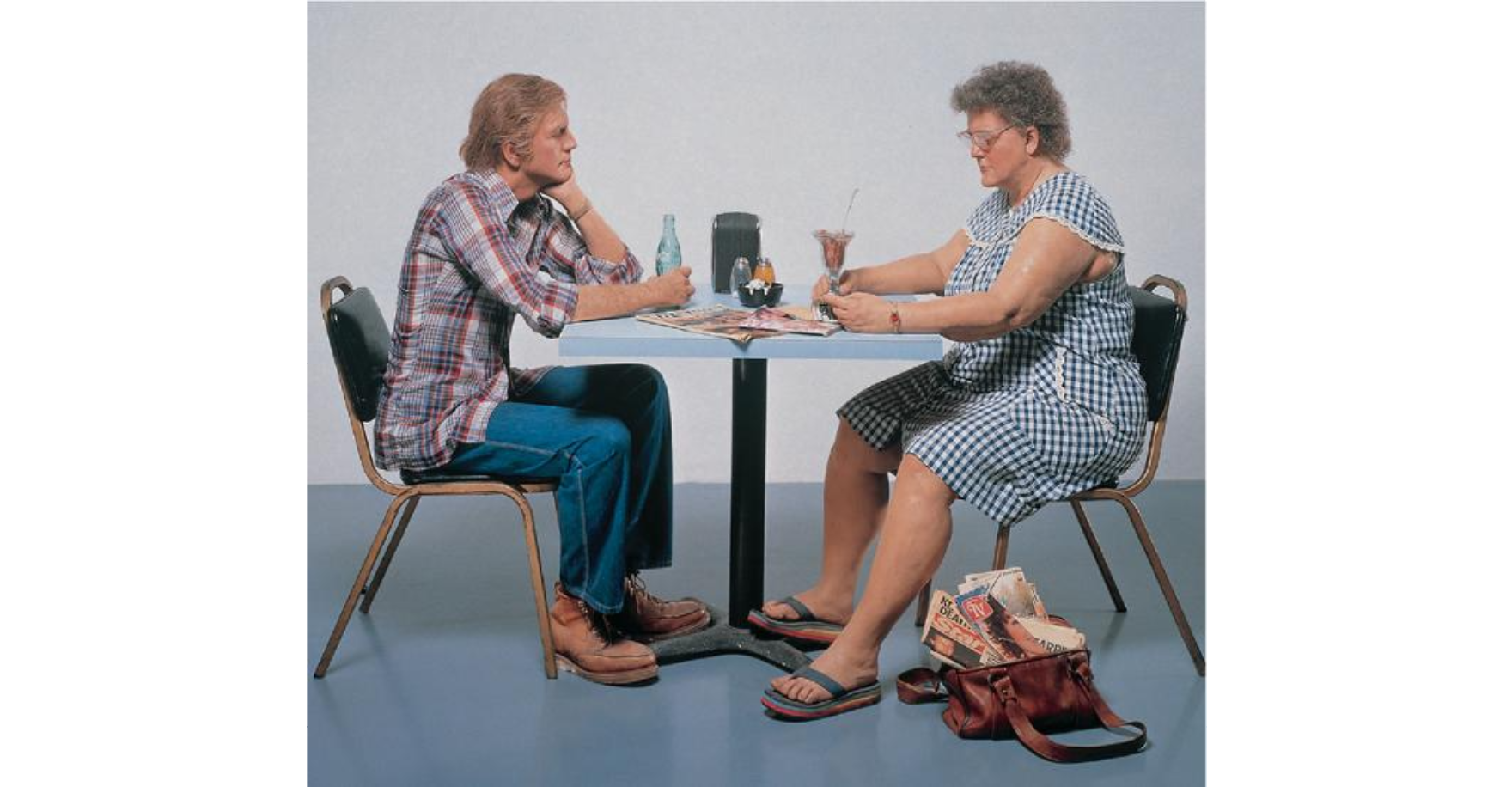
Self-Portrait with Model
Duane Hanson
1979
painted polyester, mixed media
→ life sized
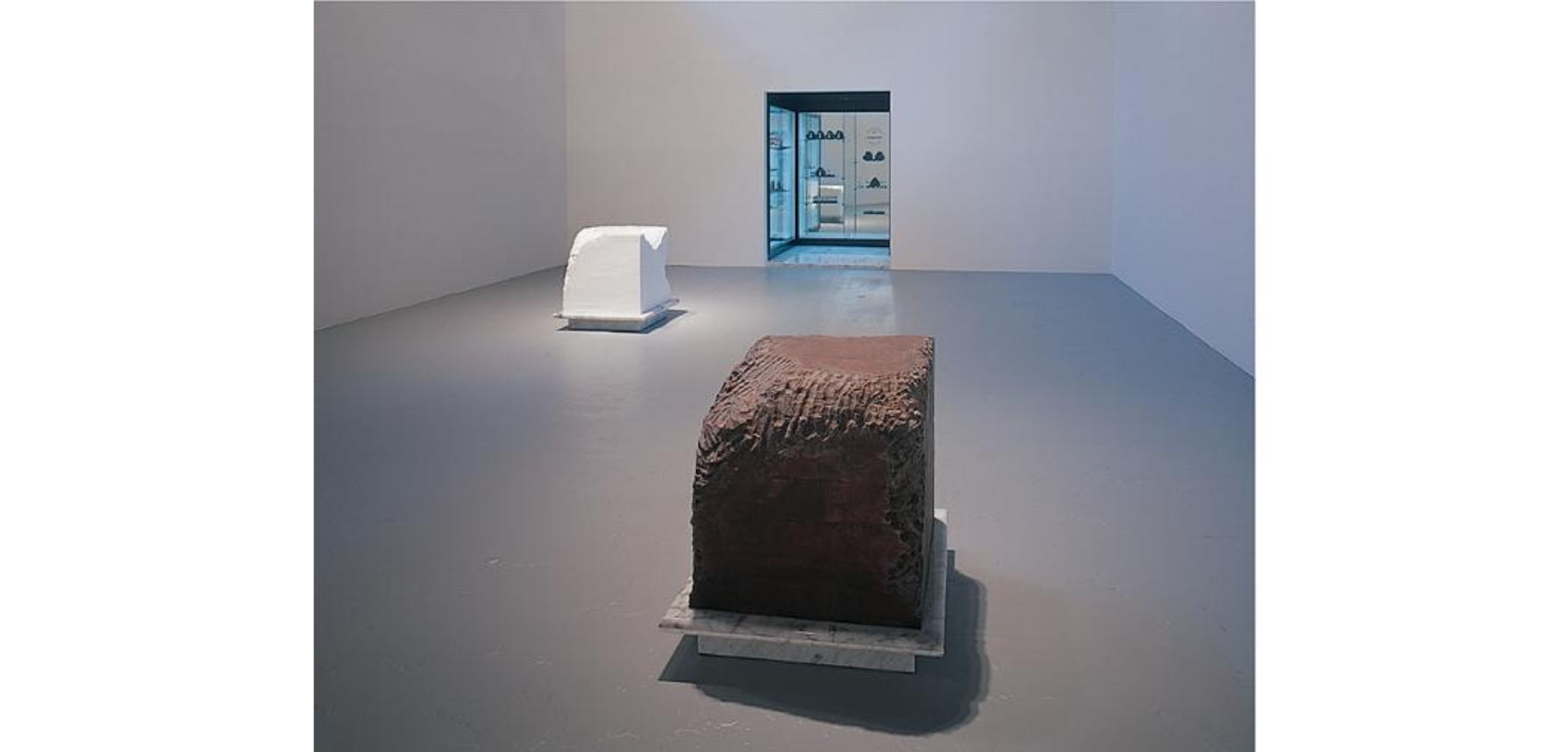
Gnaw
Janine Antoni
1992
performance art; gnawed blocks of lard + chocolate/spat out into containers
→ lard turned into lipstick, chocolate in heart candy boxes
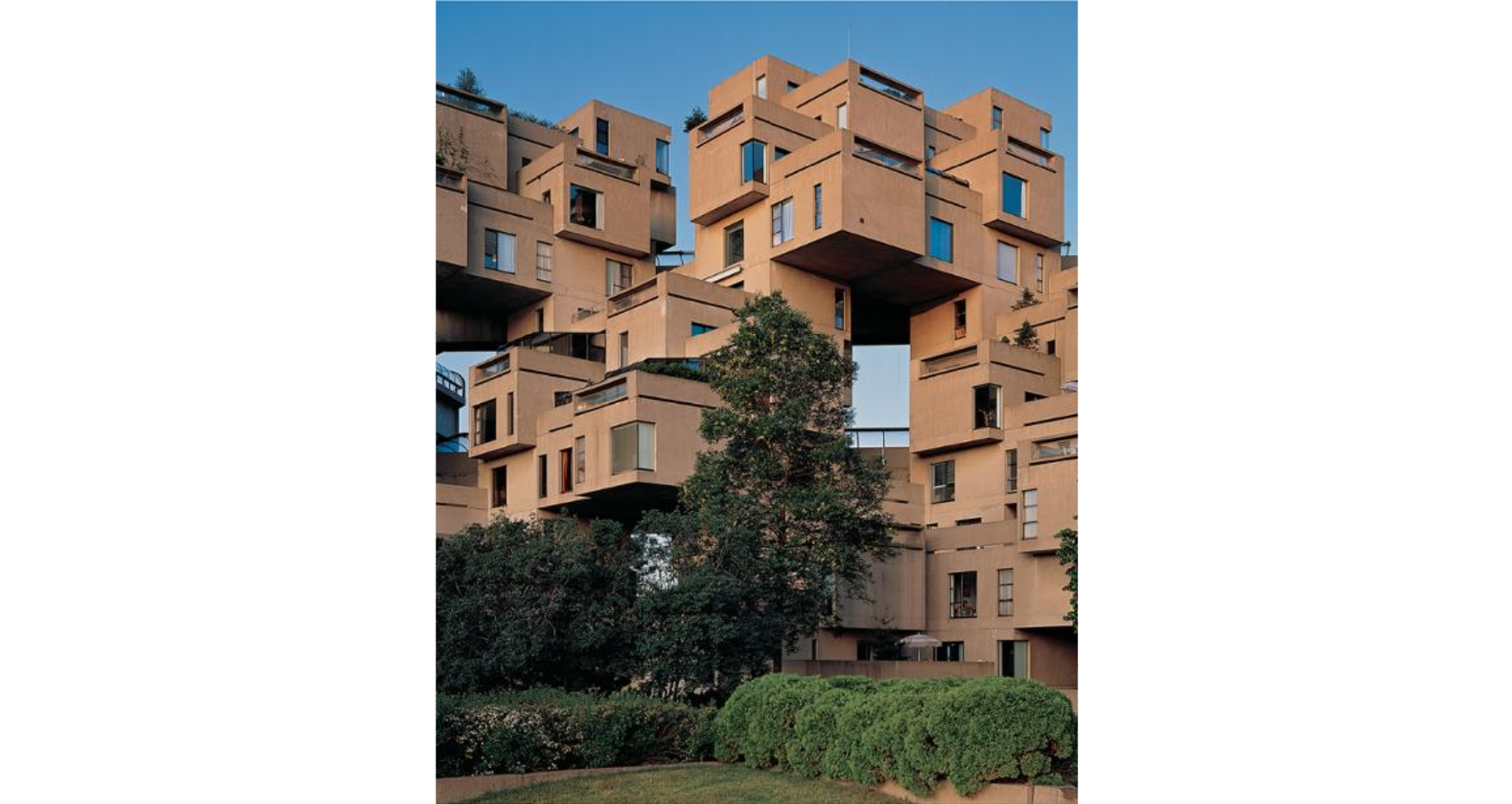
Habitat
Moshe Safdie
1967
modular living units
→ Çatal Hüyük was prob inspo for this
→ Pueblo Bonito, too
potlatch
ritual feast for Pacific Northwest Native Americans
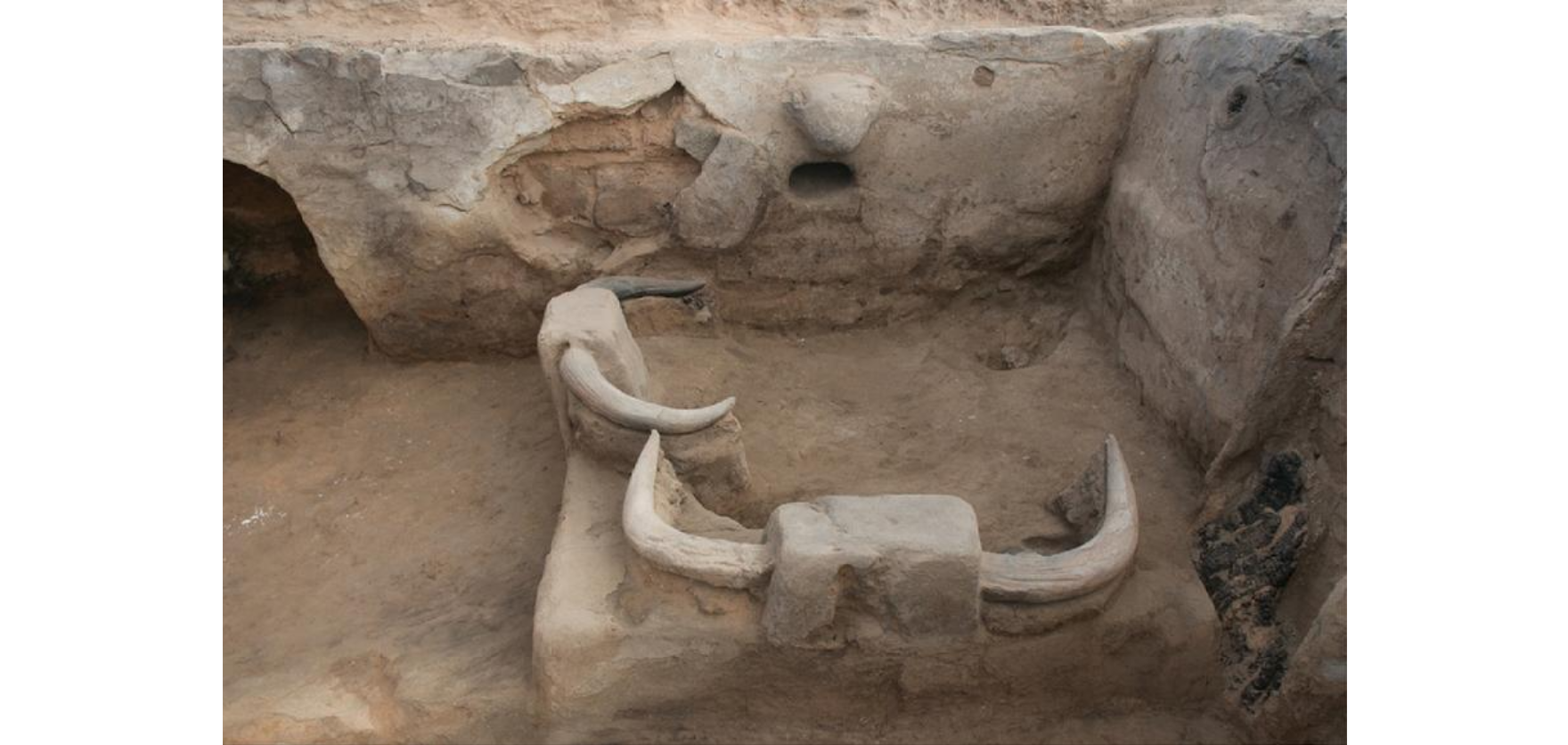
Çatal Hüyük
corner of building
6000—5000 BCE
Anatolia, Turkey
→ 1-story mudbrick/timber connected houses, clustered around open courtyards
→ shrine; bull horns
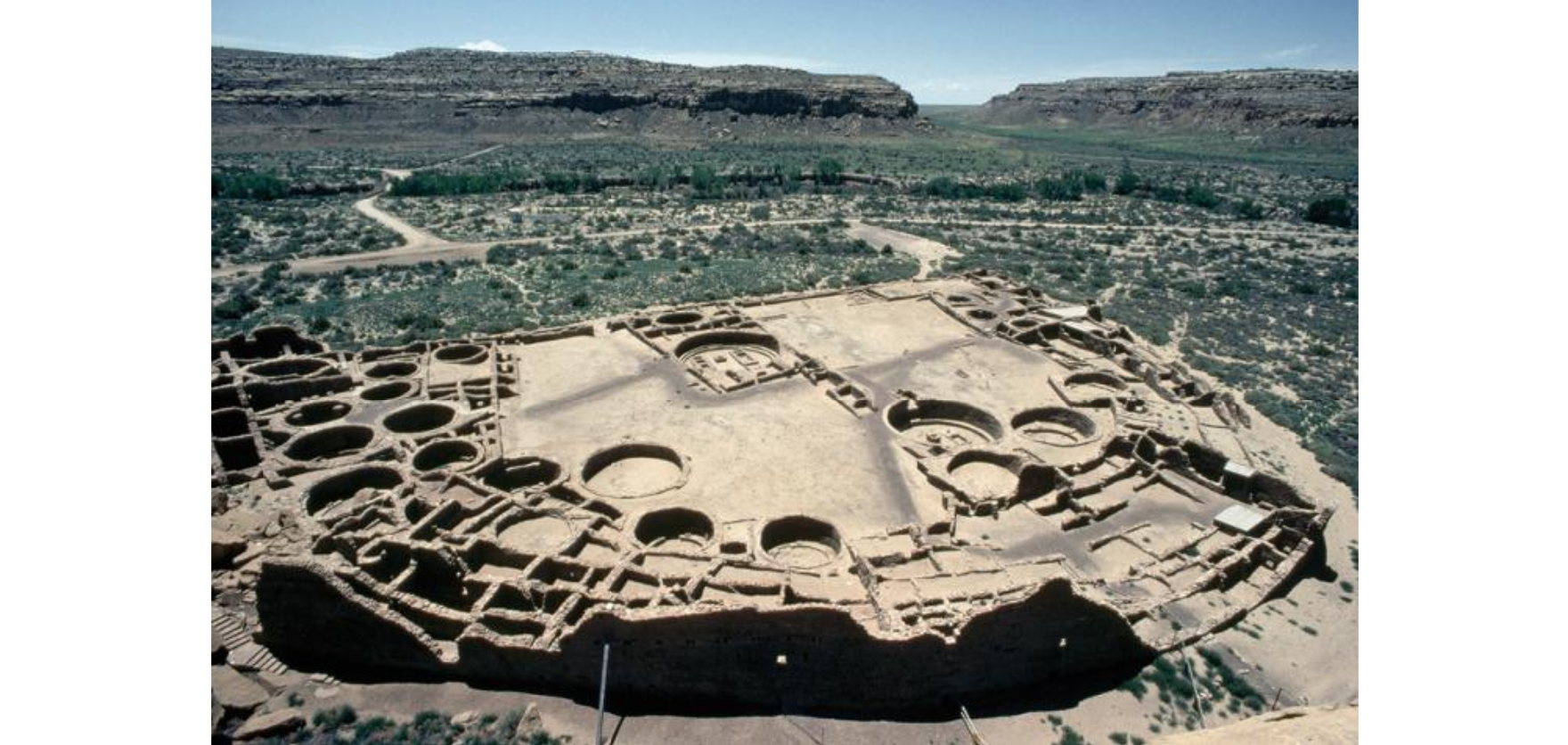
Pueblo Bonito
Anasazi
1000
New Mexico
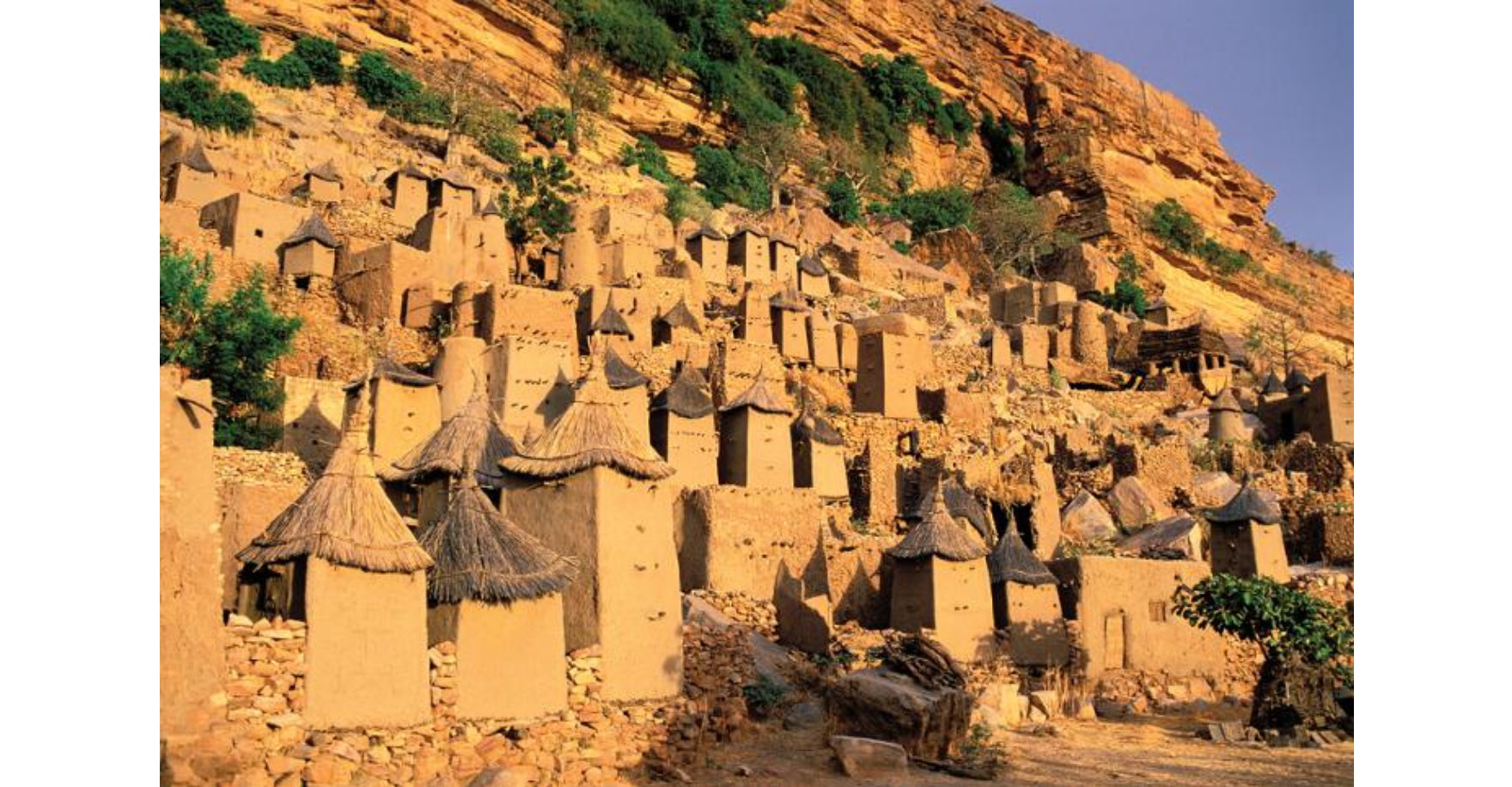
Dogon Cliff Dwellings with Granaries
Mali
1200
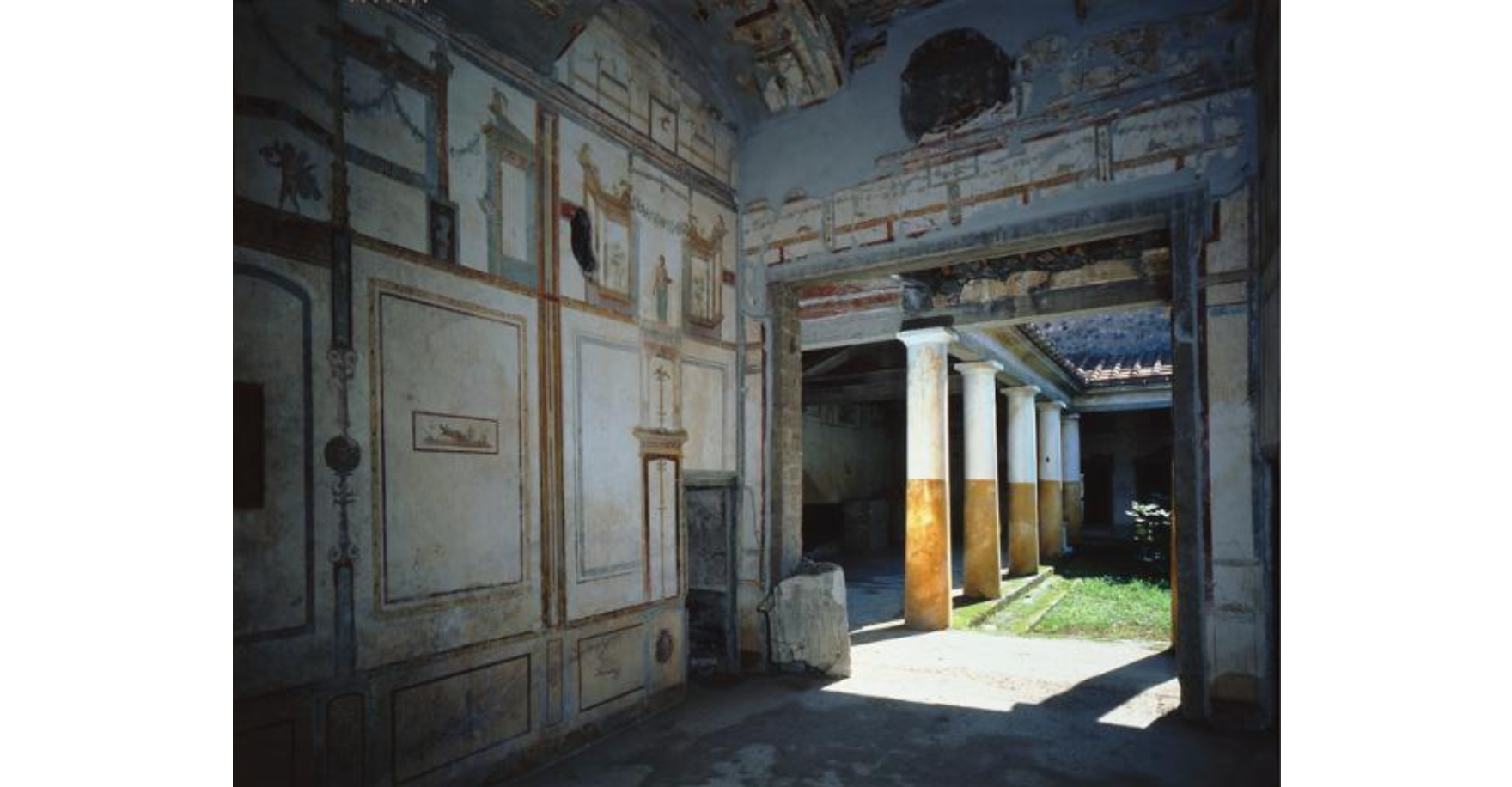
House of Julius Polybius
Pompeii, Italy
100 BCE
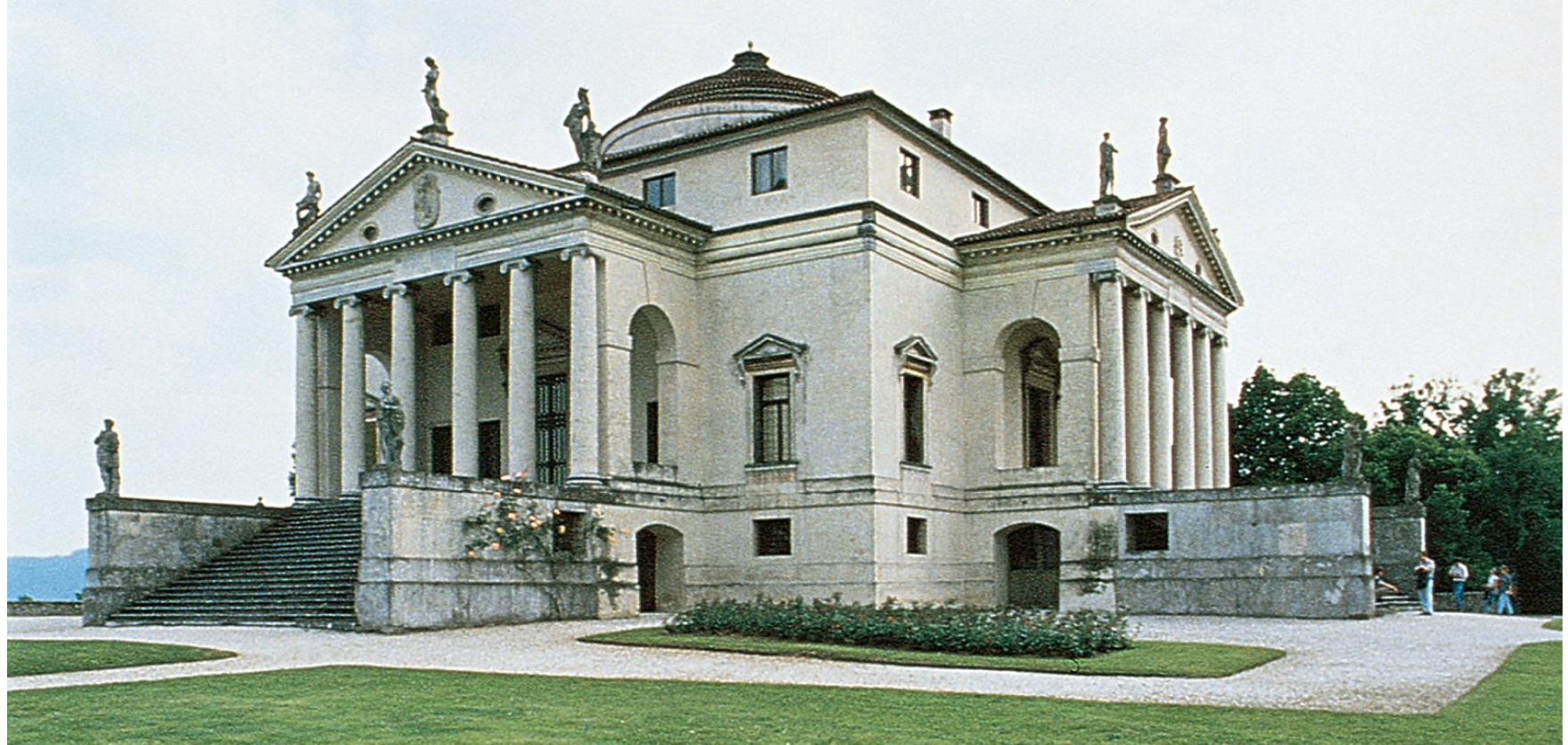
Villa Rotunda
Andrea Palladio
1552
Vicenza, Italy
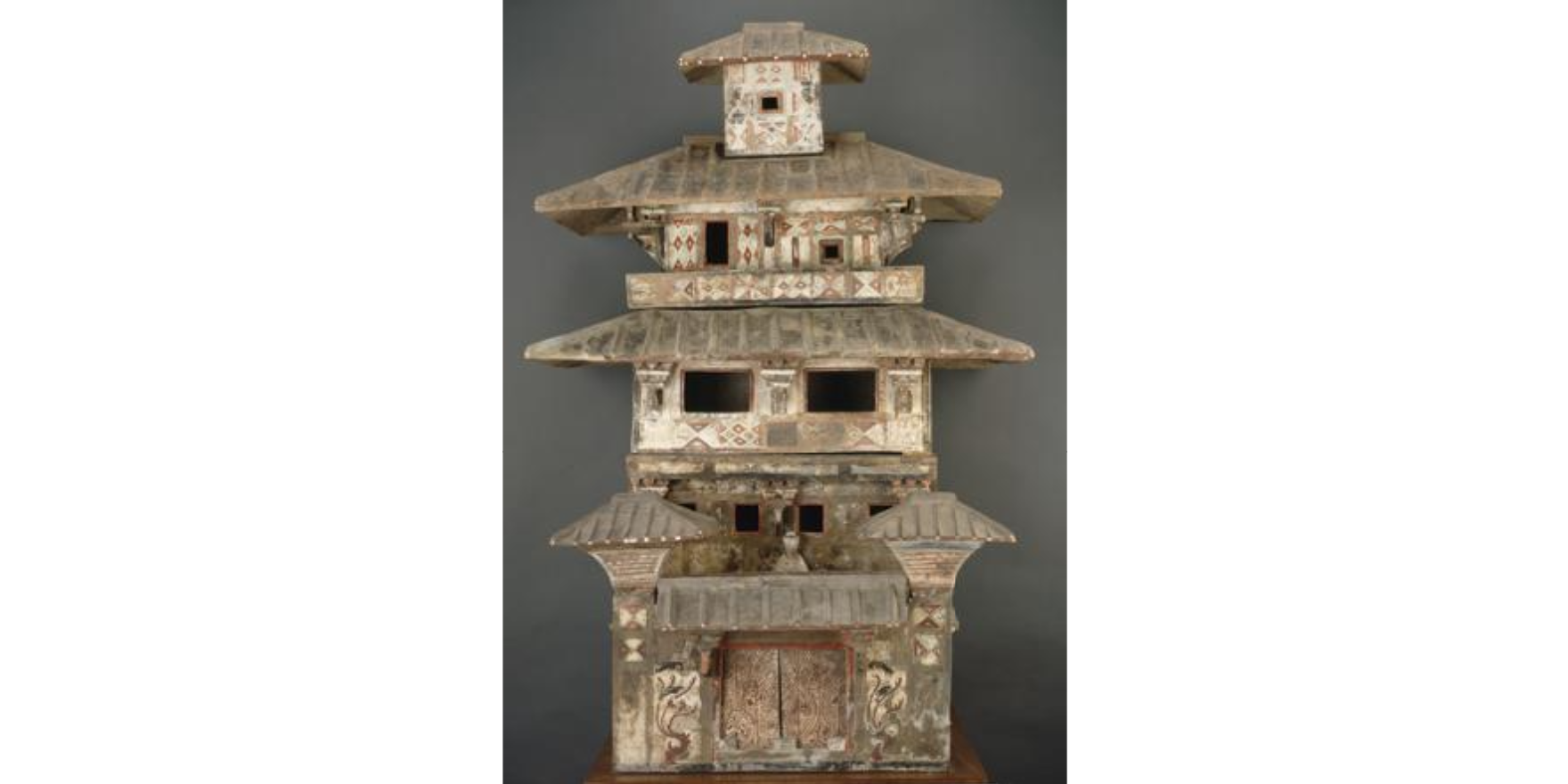
Tomb Model of a House
Eastern Han Dynasty, China
25—220
ceramic
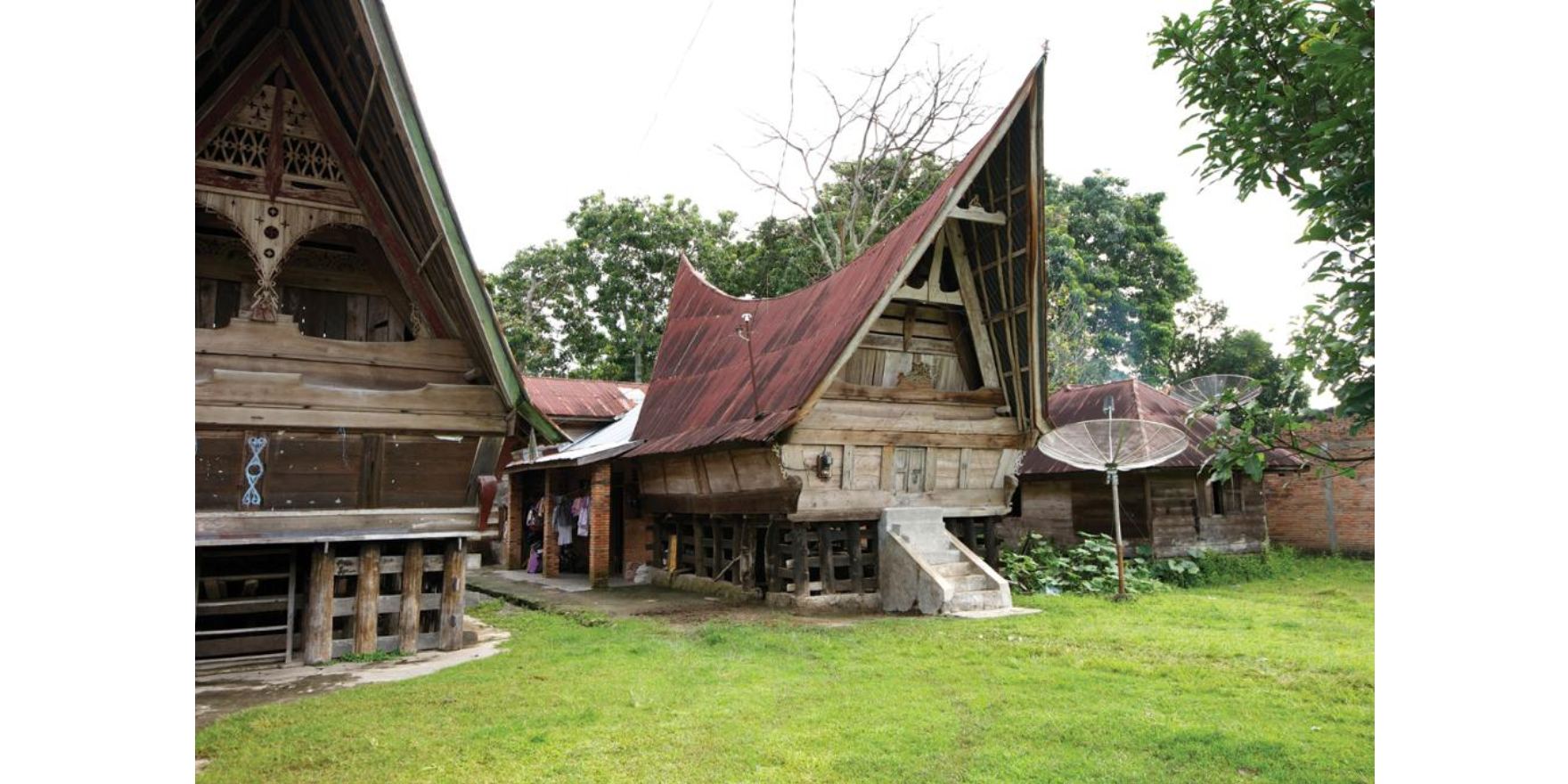
Toba Batak House
Sumatra, Indonesia
1900s
decorated facade
shelters are made in different styles due to:
need for protection/historical necessity
available materials
aesthetic choice
following precedent
imitating foreign styles
symbolic importance
self-expression
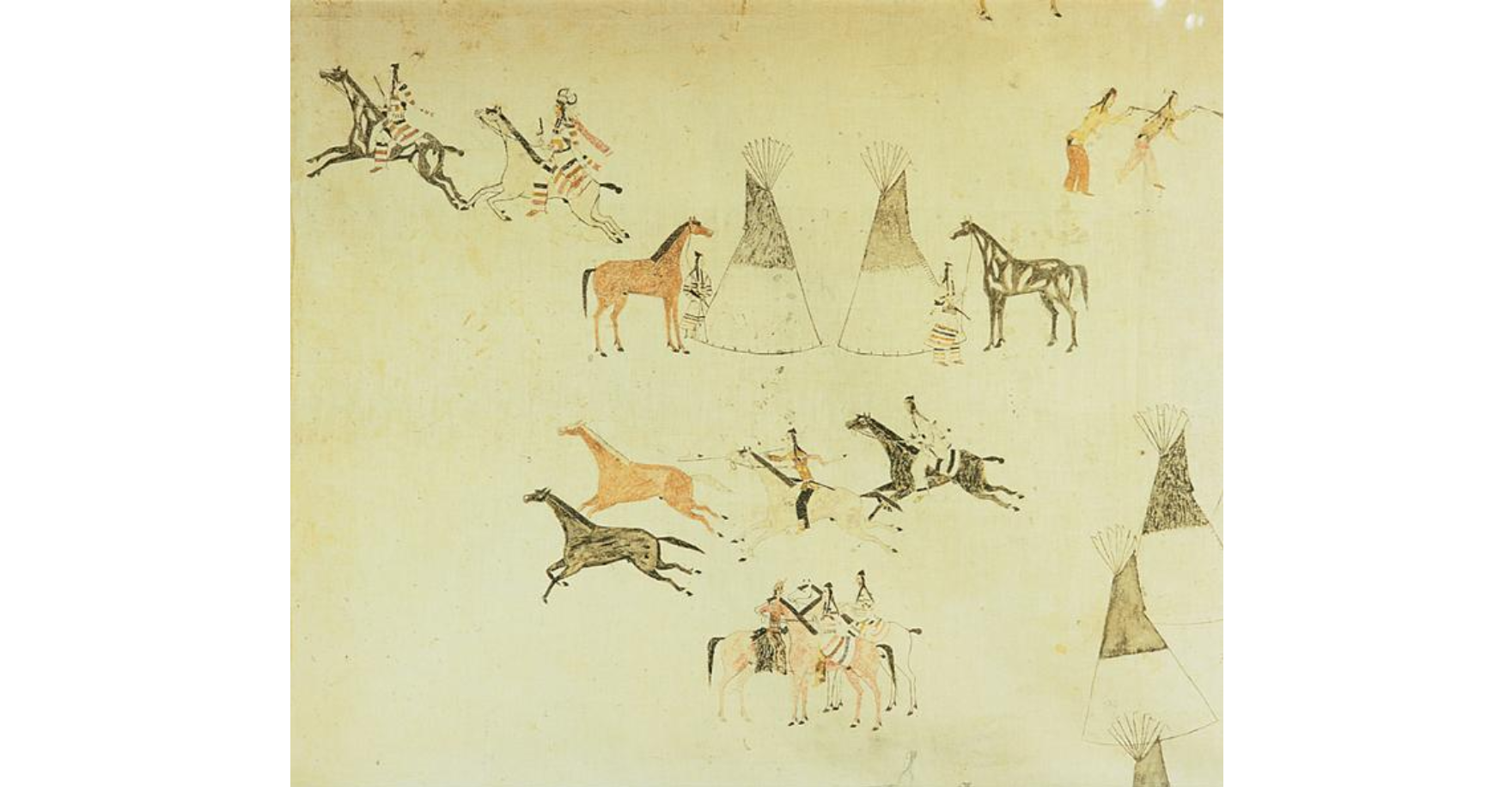
Tipi Cover
Sioux Tribe
1880
(teepee; animal hide)
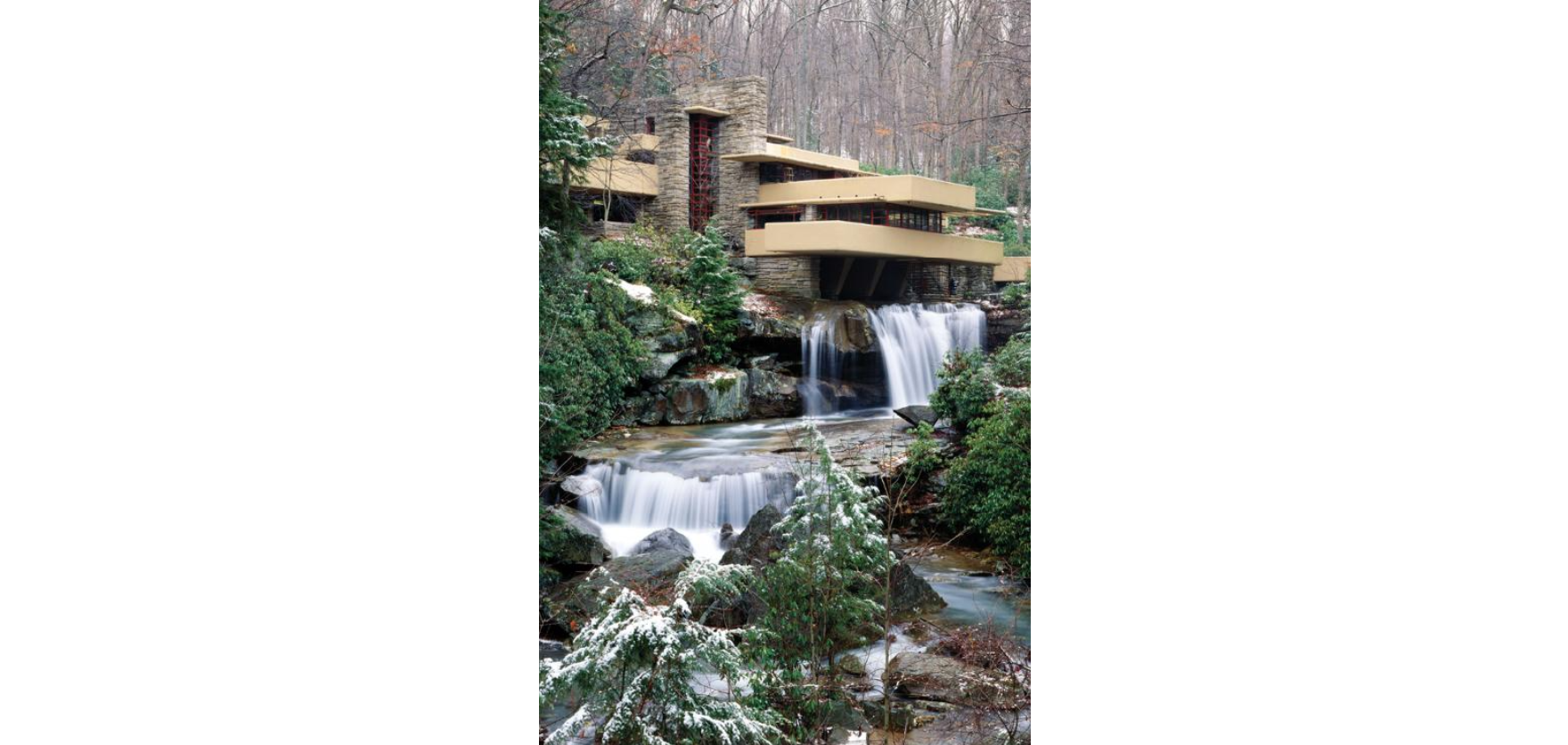
Fallingwater
Frank Lloyd Wright
1936—1938
Kaufmann house
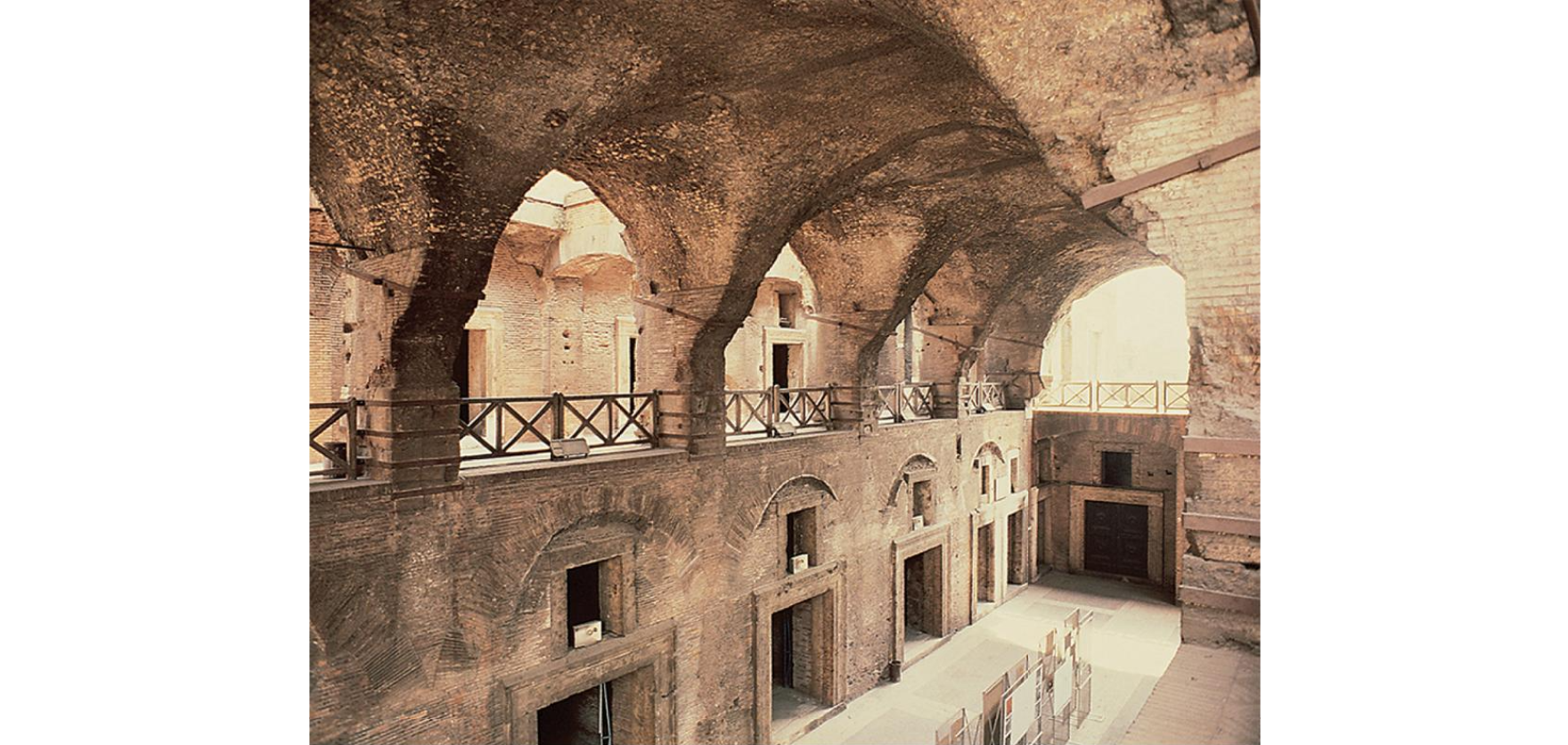
Interior of Markets of Trajan
Rome
100—112
→ multistoried complex; admin. offices, 150+ shops
→ design likely influenced by souks of Middle East

Carson Pirie Scott and Company Building
Louis H. Sullivan
1904
Chicago

U.S. Pavilion
R. Buckminster Fuller
1967 (Expo; Montreal)
Geodesic dome, diameter 250 ft

Bank of China Building
I.M. Pei and partners
1989
Hong Kong
→ resistance to international style; move away from rectangles, toward triangles/diagonals
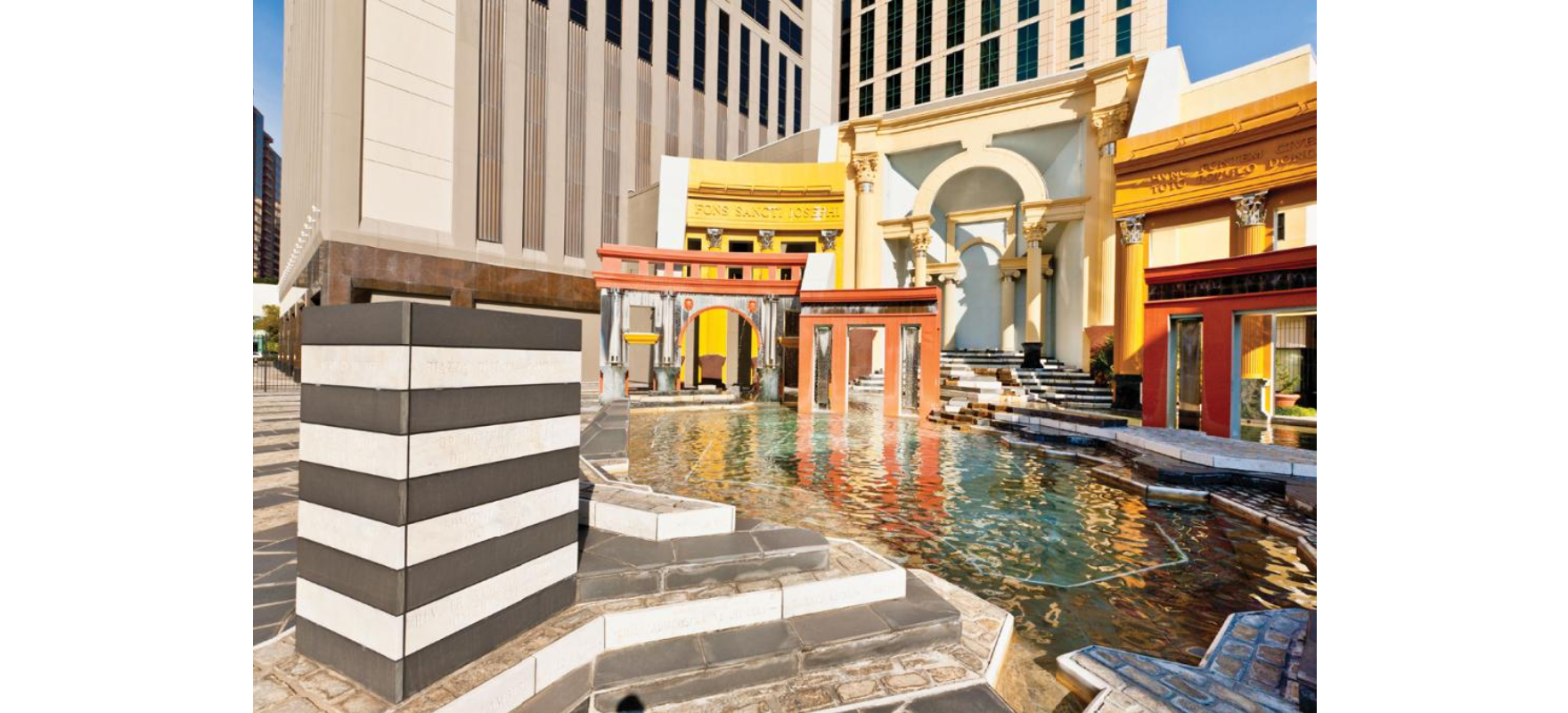
Piazza d’Italia
Charles Moore w/ U.I.G. and Perez Associates
1975—1980
New Orleans
→ postmodernism; visually complex, individualism, fun
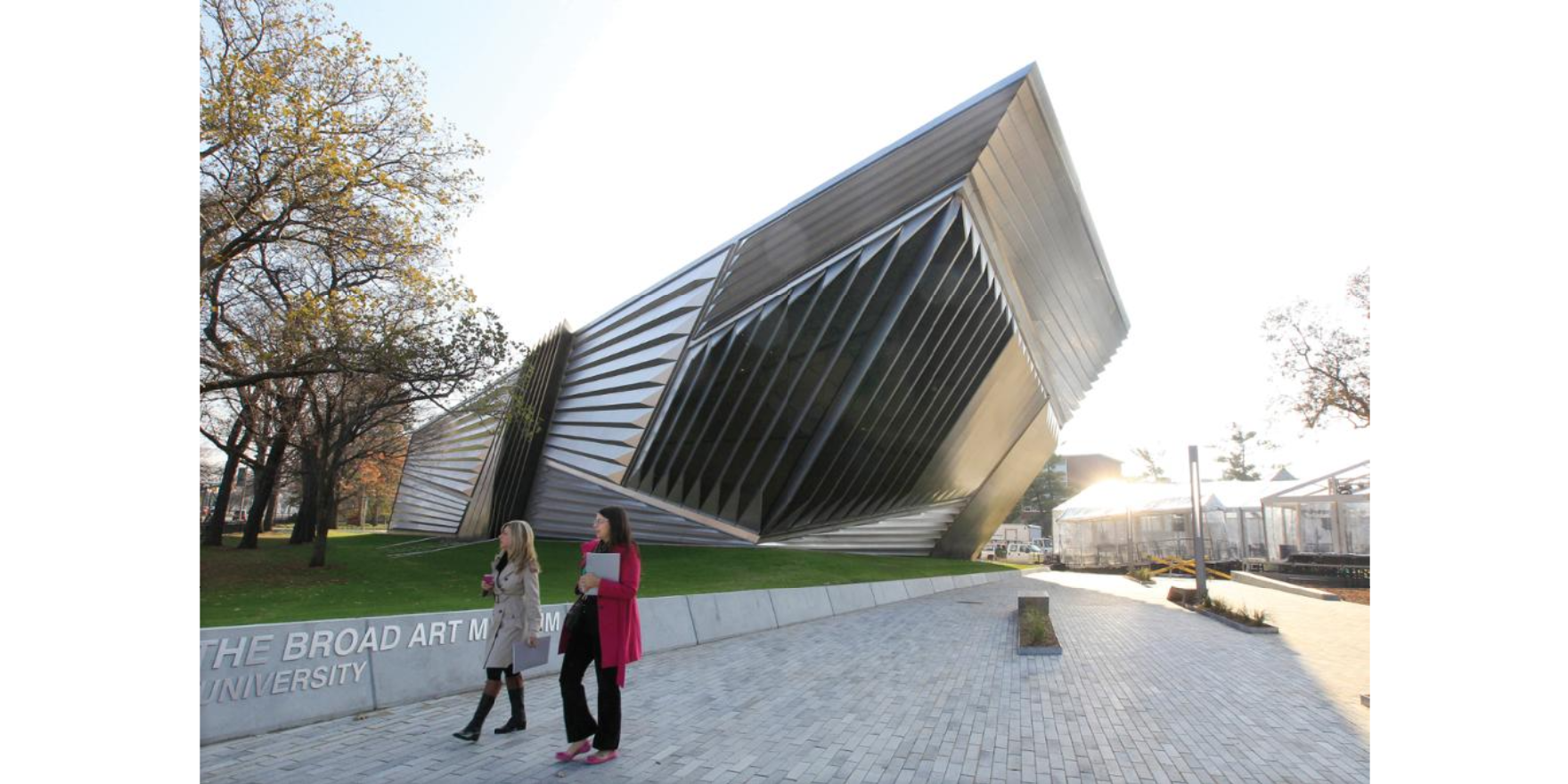
Broad Art Museum
Zaha Hadid
2012
University of Michigan
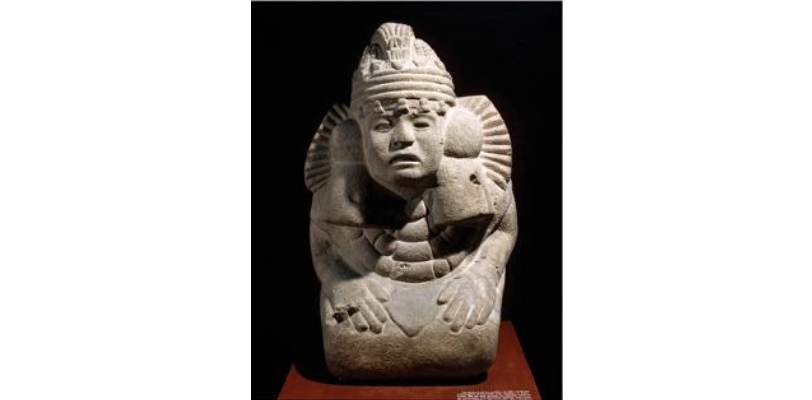
Xilonen, Goddess of Young Corn
Huastec, Tuxpan (Veracruz) Mexico
1000-1200
limestone
parts of Toba Batak house and their symbolic meaning:
internal spaces = maternal
the house itself = body
stilts = legs
roof = head
trapdoor = navel
elements of Fallingwater/Wright’s beliefs:
houses should be unified wholes that merge w/ natural setting
use local materials
cantilevered porches (influenced from Japanese/Chinese architecture)
commercial architecture
provides shelter for the needs of business and trade
R. Buckminster Fuller
late 20th century public structures;
he believed technology could provide more affordable shelter
→ his geodesic domes were spherical networks of steel-frame tetrahedrons
→ became symbol for 20th century innovation and progress
international style
midcentury buildings; rectangular steel buildings
→ named for global prevalence in large cities
deconstructivist architecture
rejects established conventions, want to shake viewer’s expectations
abstract sculptural buildings